#mofftiss have no care for us
Explore tagged Tumblr posts
Text
So my mother and little cousin watched Stranger Things (I didn't yet because I have to force myself to wait for it to end but you can talk freely to me about it if you want I don't care about spoilers and never did).
And I checked the By/ler tag (typing like that so they don't find this post) and while I am rooting for you guys so hard (you? us?) it did feel impossible seeing the same type of posts "Mike is gay" and "Rival Ship are going to look so stupid when they finally kiss." and "By/ler is endgame and is/will be canon") and not have TJLC flashbacks.
And since I am obscuring the ship name on purpose, this is more of a vent than a warning, but as a writer, the only deciding factor on if a gay ship happens or not is whether the writers and actors decide it will happen.
I never thought the TJLC premise was that out there. I never shipped John/lock, but the idea that Sherlock is in love with John and even that John's rage was over his repressed feelings and his relationship with Mary was a cover-up for his bisexuality was never far-fetched. It's only in the details that it fell apart a little bit. The subtext was always real, it was just always intended as queer subtext and Mofftiss thought they were in the clear if they just called it a joke and said it will never be canon.
I also immediately knew I would ship Will and Mike when I didn't ship John and Sherlock because it has something they don't: an actual friends-to-lovers (as a concept). And this isn't actually a diss of John Watson or the validity of his friendship with Sherlock this time. I am actually referring to something else.
John/lock as a concept isn't for the most part, them just being close platonic friends first. It hinges on John and Sherlock flirting with each other as soon as they meet, being jealous of potential partners very early on, and both being aware of their own feelings on at least a subconscious level. I have no interest in those kinds of ships. I had a friends-to-lovers ship, and it's not that. This is just a classic romantic misunderstanding setup. It's a romcom setup. That's why it worked and for the most part, it's why it got popular.
And back to my actual point: it doesn't matter how much sense it makes. I know that Will is canonically gay and Sherlock wasn't. I know there are signs and parallels and that it would be great and make sense and listen—I want it to. I want us to win. I want queer kids to have this. I want to have this!
And a different rant: You guys go on ao3 and see that Destiel is number 1 and talk about how insufferable the shippers are so of course you are rooting against them. They are not the oppressors here. A teen girl wanting Dean Winchester to be bisexual like her isn't a fetishist. You love it when queer shippers shut up and just take what they are given and don't ever complain. I hate fanservice too. But not for the reasons you do. You aren't rooting for annoying shippers to not win, you are rooting for queer people to lose.
That's what's so frustrating about the progressive het-ship shippers (and I am saying the ship is het not the shipper, you can be queer and like a het ship it doesn't make you a straight person).
You guys go online and see M/M trending over M/F and F/F and you forget that's not how real life works. All your talk about cis white men aside, society will take a kiss between two girls over two boys any day, as they can at least fetishize it. I knew this as a kid, but then I see the discourse online be all backwards.
No. You at least get lesbians. The lesbians die, but we at least had them. We had Lexa. We lost her, but we had her. We had a lesbian kiss advertised and used to draw people in. And to some, that's even more painful. Those tropes are painful just as queerbaiting is painful.
And then I see people like that one Sher/lolly shipper complaining about shippers. Clexas weren't rabid shippers. Some of them were for sure, but they were Lexa fans who had this awesome badass lesbian as a leader and we lost her. Wlw lost her. Making this about shipping when the romance between Lexa and Clarke was canon and thus part of the canon storyline and therefore Lexa's storyline is just immature and disingenuous.
I saw someone criticizing By/lers by saying Will wouldn't come out in the eighties and nineties because it was harder to be gay and how being gay as a teen is cool today, and I heard the same thing in the 2010s, who I feel most of us an now agree were filled with homophobia.
And no. No it is not cool now. It is only cool if your friends are already LGBT themselves or they are very dedicated allies. Society is not as accepting as you think it is. It wasn't back then and it isn't now.
And I know I don't know enough about this so maybe my opinion is irrelevant to you and you might be right. I know you think every show is different, and maybe this one is. I want it to be. I want to!
But don't put all of your eggs in this basket. Don't put the cart before the horse. Don't hand your enemies this win so they can call you all stupid if it doesn't happen right now. It's okay to want this. It's okay to hope. Just... don't make this your entire life, please.
Shows can let you down. Even good shows, even progressive shows, even the ones you trust. Especially those ones as you actually allow yourself to have hope that this time it's different and maybe it is.
Have a queer show or movie or book as a backup. Write your own media. Create. Enjoy what others create. Having hope is great some times and heartbreaking otherwise. But maybe that's just my cynicism speaking.
#the 100 spoilers#bbc sherlock spoilers#bbc sherlock#tjlc critical#byler critical#stranger things spoilers#stranger things season 4 spoilers#homophobia tw
2 notes
·
View notes
Text
okay. i have done my due diligence, i have read a fair sample of ACD, i have engaged with no fewer than five other adaptations, and i can now conclusively say: i do not care about sherlock holmes o7
there's nothing wrong with it, to be clear. but i am very particular about the kinds of stories i like, and the core concept of sherlock holmes does not contain anything that personally interests me. i really am just an edgelord who enjoys mofftiss's edgelord version for being edgy, and this is very useful information for me to possess. onwards
4 notes
·
View notes
Video
[Disclaimer: Johnlock is a valid, cool ship. I don't ship it in Sherlock BBC (I do in the ACD canon and Granada Holmes), but I support everyone who does.]
The reason The Moff was so blunt and grumpy abt this question isn't that it's a horrible thing to suggest. If you're a new fan, you've got to understand that at that point, Mofftiss had already been outright harrassed abt where they wanted to take their show.
There's also an entire conversation to be had abt passing moral judgement abt the writers' narrative preferences and headcanons in relation to the original ACD canon. No, Moffat is not a homophobic arsehole for daring to write a character as largely ace.
And no, Mark does not owe us a gay main character just bc he's gay himself. He doesn't have to conceptualise close male-male relationships as sexual just bc that's a dimension he's familiar with. Let's not guilt trip ppl into changing the stories they want to tell bc we want our blorbos to kiss. The way this was held over his head by some fans was, frankly, disgusting.
And so was the way some ppl completely ignored that he stood behind this decision as much as Moffat did. You can't conveniently ignore him whenever you're unhappy with the show just bc you like him over all. He's not an uwu soft baby who can't stand up to his co writer. And he's not an evil traitor to the community either.
Don't like it? Don't watch. Prefer a different take? Write that story, put it out there in some form or the other. It's ok to grieve the potential, it's ok to be sad that your fave show took a turn you didn't like. That's normal when consuming other ppl's work - they're not you, so you might differ quite a bit. And you might even be right, you might have great points as to why it should have gone your way! Doesn't give you the right to declare them bad ppl.
This boils down to: We were not in the room. We didn't contribute to the script. And when you're invested in a show, that can feel really frustrating, almost unbearably so. You identify with the characters, and so it makes you feel helpless to an extent. That's ok. Don't let anyone tell you you "care too much".
But please realise that this helplessness is part of the medium. Watching the show means entering those two men's minds. Which is kinda intimate and can result in Big Feelings, especially if there's enough in there to get you to care but not enough to fully enjoy it.
And it's especially frustrating when you feel like telling the stories you want to tell is not accessible to you. And you're right, beyond fannish spaces like AO3, there's not a lot we can do. (Although that's already more than the original SH fans were able to do when ACD decided to kill him off. Which might be why they had so much bottled up anger that they beat him up.) What a good thing then, that both Mark and Moffat are genuinely two of the few ppl who are actually committed to helping young writers find their way into the industry. They're not hogging their seats, contrary to popular opinion.
This doesn't mean I'm not critical of some of their choices, btw. It's more than valid if you don't like them. Just don't make it weird.
60 notes
·
View notes
Note
Do you think we’ll ever get a S5?
Hi Nonny!
So, I’ve gotten this question asked in a variety of ways but generally boil down to this exact question, so I’m going to tackle this one first, and answer any others in regards to the actors separately because they’re a whole other can of worms.
I have answered variations of this question in the past, so you can read these if you want, but today’s answer is my most recent opinion:
Do I think there’s Going to be an S5?
Will There be a Season 5?
Is there Ever Going to be an S5?
Is it True S5 will Happen (Plus some Mofftiss Shitposting)?
Will There Be S5 and Will Johnlock Happen?
What Do You Think it’s Gonna Be About?
Do You Think it’s On Hiatus Right Now?
What Do I Think is Going On in S4 and Will There Be An S5
Will Johnlock Ever Become Canon?
Will they ever make a new season?
So you can check those out after reading this post.
In the spirit of my blog, I have two answers for you, and the “honest” answer is the one you won’t like.
That said, do you want my honest opinion or my tinhat opinion?
Tinhat opinion: Yes, because the story is incomplete; too many plot holes and S4′s sloppiness and complete 180 from the original plot is so bizarre (([THIS POST TOO])). Too many fucked up things that make me WANT to believe that it’s clever trick and all will be explained when S5 is finally done. There’s evidence that it was commissioned before S4, but I’ve had this theory very well debunked for me on this post here, and my opinions have changed a lot since that post.
Which segues into this: note I say “want to believe” up above there, though. Important wording here, because I feel like my faith in Mofftiss has essentially disappeared because of S4, since I really do enjoy theorizing and speculating and the evidence was RIGHT THERE. But what changed my mind was mainly the reactions and body language of the actors and my annoyance at the arrogance of Mofftiss acting like S4 was brilliant when no one else agrees with them.
This is where my honest opinion comes in, and this is me speaking without bias and with a heavy heart, and are MY OPINIONS, so you can take it or leave it, I don’t care. I’m not here to deflate anyone’s balloons, but Occam’s razor and all.
Honest opinion: No, at least not in the next couple years. Mofftiss kind of disregarded a large chunk of the fandom and got too cocky (Mofftiss: TFP is the best episode of the series! // Also Mofftiss: Yeah, but we’re not going to pitch it for an Emmy nomination) (Mofftiss: we can make anything and everyone will love it! // General Audience Critics: You THOUGHT so, what is this?) and the general disinterest of all the actors surrounding S5 is very telling to me (see the Buzzfeed “Ben With Puppies” interview, this interview with Martin Freeman, and this recounting of Setlock S4). Occasionally it’s brought up with Martin or Ben and they basically say “we’re on a pause”. I think Martin definitely felt really shafted the last season in favour for his ex (who is a whole other barrel of monkeys I have a lot of opinions on), with what they did to John’s character, and I don’t think he has any interest in continuing on any time soon. And Ben’s Buzzfeed “Interview with Puppies” is super telling to me, honestly (timestamp 1:34 if you want to see the part about ‘Sherlock’) – he was NOT “tee hee, I’m being sneaky” (sorry, I HONESTLY don’t know how people are seeing that response as such…), he was “ah, nope, not touching that one because what I wanted to happen and was told would happen isn’t anymore and we’ve been essentially silenced to talk about it.”
Plus Mofftiss seem convinced that this new Dracula project is their next big thing and even they seem to have lost interest in Sherlock all because they didn’t get the praise for S4 that they’ve gotten in the past. I’ve also read a long while ago that Ben is busy with his production company and Marvel for the foreseeable future AND Mofftiss have ANOTHER project after Dracula, and it’s not Sherlock (unconfirmed on this second point, it was just a mention on someone’s blog and I can’t find any articles on the other project they’re doing after Dracula).
And since I mentioned it: No, I don’t think Dracula is a “secret Sherlock thing” or “will have clues to Sherlock in it”. Yes, of course it’s going to have Sherlock Easter eggs in it – almost every showrunner has Easter eggs to their or their actors’ previous works in literally everything – but those E-Eggs will have NOTHING to do with the narrative or future of Sherlock. So, at the very least because I’m worried about everyone’s mental health, it’s already looking like Dracula’s going to be another queerbaiting mess, so please totally enjoy the show if you want, but don’t look too much into it or any E-eggs that the show has. It’s not a secret Sherlock project.
And let���s not forget the general disdain Mofftiss seems to have for their fanbase, essentially selling out because who cares about making sense, all because we criticized S4 because it didn’t make sense and called them out for their queerbaiting without an explanation of S4 [THIS ARTICLE TOO], especially after… Gatiss I think… admitted to using homoerotic subtext in the series to draw in viewership.
Even if they were doing this all to pull the ACD thing on us (essentially kill off Sherlock in a literal sense), it’s a shit way they’re going about it. To me, it feels like S4 was “revenge” for the fandom figuring out their plot before they got a chance to reveal it, because they were annoyed we figured out TAB. That, and I think certain… people… manipulated their way into having input into what they wanted and usurped Ben and Martin out of either spite or a need to be relevant. *shrugs*. But this is getting too biased, so I’ll leave it there for now.
I have mixed feelings about S4, S5, and what I want. I’ve various theories in my ‘s5 and beyond’ and ‘s4 and beyond’ tags if you’re interested in further rabbit-holing.
Listen I GET wanting to hold onto hope. Hell, I still do. But sometimes we all need to step back and look at the facts from an unbiased point of view, off of the Tumblr-sphere. I’m still a fan, as we all are, and being a fan means that you also are allowed to question things that make no sense. I really wish people would stop gatekeeping just because we all have different opinions. It’s okay to love something but know that there’s SO many problems with it (ie. Disney).
I say let it rest, and leave the fix-its to the fandom. I’m going to watch it if it ever happens, and of course I’ll start speculating again, but right now, I don’t think is the time for S5 because Mofftiss clearly have their interests elsewhere, but keep dangling the promise of more Sherlock to stay relevant.
So, TL;DR: I think if we get S5, it will be a long time from now, and I fear it will follow the plot of S4, because, like Disney with FinnPoe, Mofftiss are coming off as “passive progressive” cowards (I saw that term in a YouTube review of TRoS, and I thought it was perfect to describe them: We’ll put social issues and gays in our shows, but can’t make the leads gay for each other).
#steph replies#my thoughts#my opinions#don't matter it's just me thinking out of my ass#of course i want s5#but i think it's better left to the fandom#Anonymous#mofftiss have no care for us#s5 and beyond#sherlock s5#s4 shitposting#shitposting steph#passive progressive#queerbaiting
121 notes
·
View notes
Note
Gark, how do I do to like bbc sherlock or any other other show without caring what happens behind the scenes (interviews, podcasts, Twitter likes, etc)?
I feel like every reading I have of the show makes absolutely sense until I read an interview from a creator that just feels... wrong.
How do I do to get to the mindset of "the show is the thing"?
I don't think my approach is to necessarily not *care* about what happens behind the scenes, in interviews etc., but I definitely hold it in the perspective that it all is done in service of the show, because The Show Is The Thing.
Because not only do they lie, but the purpose of the lying is specifically to maintain the status quo established by the most recent season, in order to protect future plot twists.
Think about Mary, after S3. All the press they did after S3, they seemed SO excited that Mary was part of the gang, a new permanent character now and forevermore, the three of them solving crimes and going on adventures, what fun. I don't know if you were in the fandom then, but people who (correctly) thought of Mary as a villain after S3 were incessantly asked to "tag their Mary wank" because other people were so invested in the new happy trio dynamic that seemed to be supported, at the time, by the things everyone was saying in post-S3 interviews.
Mary died ("died") -- DIED -- in the very next modern-day episode they made. The "happy trio" didn't even last one full episode! And of course afterwards Mofftiss says well OF COURSE she dies, don't you know canon, how can you be surprised, 140-year-old spoilers, etc. etc. despite having insisted on the exact opposite for multiple years leading up.
So if you're watching the show and your gut and the foreshadowing is telling you that some big twist is about to drop, and the writers keep saying guys we're DEFINITELY NOT DOING THAT, that's the exact thing they have told us that they would say in order to protect that very future twist that they fully intend to do. They will literally say Wrong things in interviews so that when the Right thing happens on the show, you will be properly surprised.
26 notes
·
View notes
Text
There is a freedom in having burned so many times by primary creators (authors, showrunners, what have you) that you simply stop caring about their version. I don’t mean this as hateful. They did their job just by building the world and bringing us all together. But with talk of a Sherlock season 5, I’m finding there’s a hard limit to how much I care about Mofftiss’s version these days, and it’s truly liberating. I like the version so many of us fellow fans are telling each other these days, and that’s fine.
(.... She says in the abstract. If we ever get more show, I suspect I’ll be right there with the rest of you. The spirit is willing but the flesh is weak.)
#marta blathers#bbc sherlock#fandom wank#fandom... non-wank?#fandom wisdom coming from experience?#if only
8 notes
·
View notes
Text
“E” as in Eurus, Enola and Estate
In June this year the Conan Doyle Estate Ltd filed a lawsuit against an impending Holmes adaptation movie on Netflix (article from RadioTimes here: X).
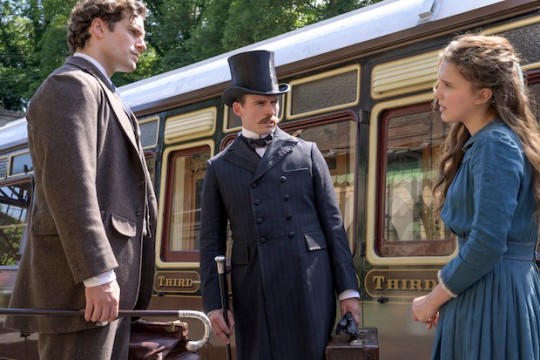
Sherlock, Mycroft and Enola, starring Henry Cavill, Sam Claflin and Millie Bobby Brown.
This post about it by @tendergingergirl (X) seems to have gone largely unnoticed, but I think it deserves far more attention. In fact, it got me thinking “What’s all this actually about?” and looking a few things up.
My curiosity about the doings of this Estate began in December last year, before the release of BBC Dracula in January, when an interesting discussion initiated after an excellent meta by @yeah-oh-shit (X), who had made some investigations into previous copyright and public domain issues and lawsuits, which I had never known about before.
And now it turns out that the Conan Doyle Estate Ltd (from here on I’ll call them ‘ACD Estate’) is suing the film makers, along with Nancy Springer, author of a book series based on characters from the Holmes universe called The Enola Holmes Mysteries (2006-2010), for copyright infringement.
But I thought most of ACD’s Sherlock Holmes stories are now in public domain, including the Illustrious Client, the Sussex Vampire and the Three Garridebs, whose copyright under US law expired last year (2019)? Well, yes, but that’s still not all of them, and according to ACD Estate “for those of the stories whose copyright terms have ended, this action is brought within the three-year limitations period for infringement.”
More under the cut.
So, the ACD Estate’s copyright, they claim, still includes the following ten stories collected in The Casebook of Sherlock Holmes:
The Creeping Man (1923)
The Illustrious Client (1924)
The Three Garridebs (1924)
The Sussex Vampire (1924)
The Retired Colourman (1926)
The Lion’s Mane (1926)
The Three Gables (1926)
The Blanched Soldier (1926)
Shoscombe Old Place (1927)
The Veiled Lodger (1927)
The whole lawsuit can be downloaded as a PDF file from this news article (X), and it’s quite an interesting read.
Claims about Sherlock Holmes’ emotions
So, since this is not the first lawsuit from the ACD Estate about adaptations, what’s their beef with the film makers this time? As far as I can see from their claims, this is about Sherlock Holmes’ emotions.
This is how the ACD Estate reads Holmes’ character development in the lawsuit: “Conan Doyle made the surprising artistic decision to have his most famous character—known around the world as a brain without a heart—develop into a character with a heart. Holmes became warmer. He became capable of friendship. He could express emotion. He began to respect women. His relationship to Watson changed from that of a master and assistant to one of genuine friendship. Watson became more than just a tool for Holmes to use. He became a partner.”
They even quote the famous passage in The Three Garridebs (3GAR, 1924) where Watson says: “It was worth a wound—it was worth many wounds—to know the depth of loyalty and love which lay behind that cold mask.”
But all this progress, they claim, specifically happened within these ten still (allegedly) copyrighted stories, which Conan Doyle wrote after World War One, where he had the traumatic experience of losing both his son and his brother.
They claim that Holmes’ emotional development is still under their copyright (which I believe in practise means their power to decide whether to allow a film adaptation or not) and apart from the emotions issue, they also provide the following other examples of developments that are (supposedly) unique to these ten still copyrighted stories:
Holmes employs a knowledge of medicine in Watson’s absence
Holmes and Watson use modern technologies in detective work for the first time
Watson marries a second time during his association with Holmes (BLAN)
Holmes changes into someone who has great interest in dogs
Sherlock’s “secret sister”
The Enola Holmes Mysteries got me interested, and now I’ve read the two first of six instalments in total. The series is about Sherlock’s and Mycroft’s younger sister Enola, a clever teenager whom the brothers – in particular Mycroft - want to send away to a boarding school after their mother has disappeared and abandoned her. But Enola hates the idea of being confined to a place where she will be forced to wear a corset and restricted to a certain (‘female’) behaviour at all times. She escapes to London, where she starts a secret private detective career specialising in investigations of missing persons. Enola must keep ahead of her brothers who are determined to capture and force her to conform to Victorian society’s expectations for young women. She skilfully uses different disguises, just like Sherlock, and she meets John Watson pretending to be someone else. With her cleverness she manages to outwit even Sherlock. She is good at drawing and uses her sketches in her work. She manages to communicate with her mother (and eventually also with Sherlock) by using ciphers.
All of this does seem to have certain similarities with how Eurus Holmes is described in S4, doesn’t it?
Eurus is, like Enola, the secret Holmes sister whom we never have heard of before.
In TFP Mycroft claims Eurus’ intellect was superior to both Sherlock’s and his own; she was “incandescent”.
We see little Eurus draw sketches of her family members (not very pleasant sketches when it comes to Sherlock, though).
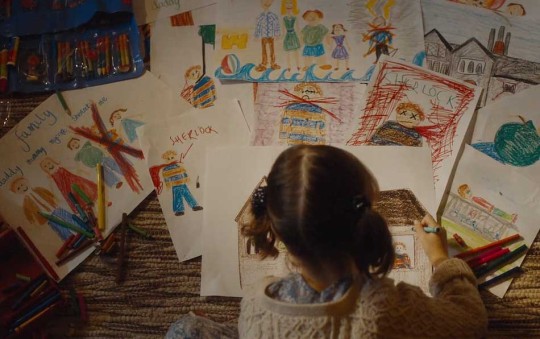
Mycroft made sure Eurus was sent away to an isolated prison/institution (Sherrinford) at an early age.
Their parents seemed absent and not particularly interested in the whereabouts of their own daughter (they didn’t even know she was alive); they let Mycroft and ‘Uncle Rudy’ take care of things, so one could easily suspect she was abandoned.
Eurus seems to have escaped to London at her own leisure, while Mycroft thought she was incarcerated.
Eurus appears in London under three different disguises: “E” (flirting and texting with John),
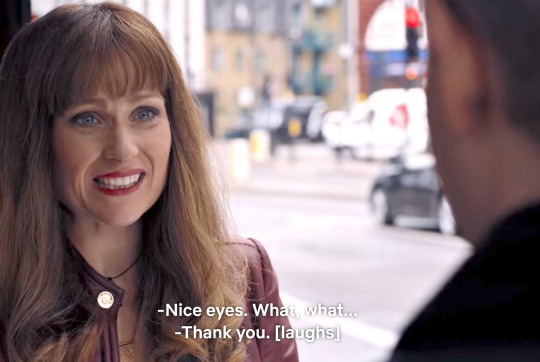
“Faith” (walking the streets of London with Sherlock)
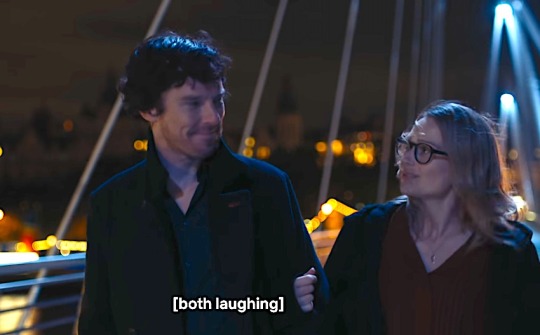
and John’s new therapist.
Eurus makes riddles with codes for Sherlock to decipher (“The cipher was the song”).
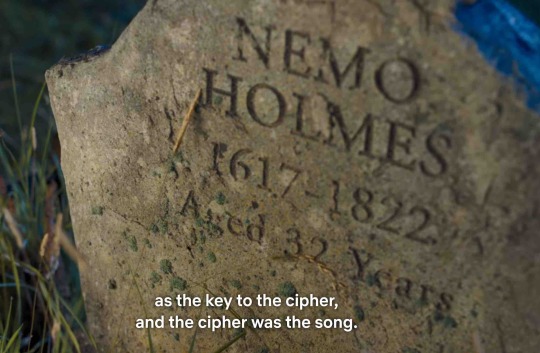
So, one might wonder if the Eurus plot is – at least to some degree – inspired by Enola Holmes? On the other hand, while Eurus appears cold and calculating, Enola is compassionate and sensitive and makes mistakes because of emotional bias. Enola seems more similar to Eurus’ disguised personas than to the supposedly ‘real’ Eurus - the one who burned the family estate down and killed Victor Trevor.
I still believe that Eurus only exists inside Sherlock’s head in BBC Sherlock, being a part of himself, but that’s for another discussion.
As for the Holmes siblings, it’s also interesting that on the ACD Estate’s website, where they have a collection of ’facts’ about ACD’s characters, they seem to have included BBC Sherlock’s Eurus as a valid sibling of Sherlock and Mycroft (scroll down to ���Holmes facts” on this page: X), even though this character is nowhere to be found in canon. Please correct me if I’m wrong about this, but the only reference I can find to ”the East Wind” in ACD’s stories is in His Last Bow (LAST, 1917), where Holmes says that ”There’s an east wind coming, Watson”, and goes on to talk about a cold, bitter wind that is threatening England; most probably a reference to WWI, which was raging at the time of publication. No one with the name Eurus is ever mentioned, though. If Eurus had already been part of canon, why would Mofftiss have claimed her to be the big ”rug-pull” in TFP?
I haven’t read the final part in the Enola Holmes series (X) yet, where allegedly Enola reconciles with her brothers (Sherlock in particular) and they end up respecting her independence and skills. But according to several reviews Sherlock softens up a bit in the end. In the parts I have read, the two adult brothers appear rather conservative, patronising and sexist towards their younger sister – indeed more condescending than I think Holmes view of women actually is described in ACD’s original stories (allegedly – we never see him treat women badly in practice, do we?). At any rate, I haven’t this far been able to find a single specific plot element from the ten (supposedly) still copyrighted stories in Springer’s work.
In their lawsuit, the ACD Estate claims that “The Springer novels make extensive infringing use of Conan Doyle’s transformation of Holmes from cold and critical to warm, respectful, and kind in his relationships. Springer places Enola Holmes at the center of the novels and has Holmes initially treat her coolly, then change to respond to her with warmth and kindness.”
So what they’re doing here is the same thing they’ve done before (and lost): they’re claiming they still own some intrinsic characteristics of Sherlock Holmes, even though most of the stories are already in public domain.
Other lawsuits
A similar lawsuit towards Miramax (X) was made in 2015 for the film Mr Holmes, which had Ian McKellen as protagonist. But it ended in settlement before the defendants had responded to the accusations, which were similar to those regarding Enola Holmes about Holmes’ emotional life, but also had to do with the details of Holmes’ life as a retired man.
So, this is not the first time the copyright owners are interfering with content in Holmes adaptations. To complicate things further there seems to be two different estates claiming copyright for Doyle’s work. In 2010 there was some reporting that another estate had threatened Guy Richie’s Sherlock Holmes movies with disapproval after Robert Downey Junior had discussed Holmes possibly being gay on a TV show (X). According to Digital Spy, Andrea Plunket, who then represented the ‘Arthur Conan Doyle Literary Estate’, said: "I hope this is just an example of Mr Downey's black sense of humour. It would be drastic, but I would withdraw permission for more films to be made if they feel that is a theme they wish to bring out in the future. I am not hostile to homosexuals, but I am to anyone who is not true to the spirit of the books."
It’s very unclear which legal rights Andrea Plunket’s family (Andrea apparently died in 2016) actually has to represent ACD’s work, though. Andrea had been married to one of the copyright owners, and her family’s money had paid for the purchase of those rights, but after her divorce Andrea seems to have lost her part in the copyright, according to @mallamun on tumblr: (X). There’s also a lot of interesting things to read about these copyright issues in an article by Mattias Bodström from 2015: (X). However, there’s still a website from ‘Arthur Conan Doyle Literary Estate’ claiming ownership of the stories: X, and they have published a detailed account of their version of the matter (X).
The current case
I have no idea what the court will think about these new accusations against Netflix et al, but to me, if this isn’t farfetched, I don’t know what is. I think a good case could be made for most of these ‘unique’ elements listed above being expressed already before the Case Book. For example, in His Last Bow (LAST, 1917) they use a car, in The Dying Detective (DYIN, 1913) Holmes manages to fool Dr Watson that he’s very sick. When Watson declares his intent to marry for the first time already in The Sign of Four (SIGN, 1890), Holmes resorts to drugs. The dogs are all over the place since day one, and Holmes seems to appreciate them very much, not least Toby in SIGN.
And don’t get me started on the contradictions in Watson’s various discussions of whether Holmes has a heart. Holmes’ actions of helping people often contradicts the image of a cold, emotionless person. The Yellow Face (YELL, 1893) ends with Holmes being deeply repentant for being over-confident in his suspicion of a woman for adultery or maybe worse offences, when she was actually only trying to protect her little daughter from society’s racism.
In the Devil’s Foot (DEVI, 1910) there’s the following conversation (my bolding): “Upon my word, Watson!” said Holmes at last with an unsteady voice, “I owe you both my thanks and an apology. It was an unjustifiable experiment even for one’s self, and doubly so for a friend. I am really very sorry.” “You know,” I answered with some emotion, for I had never seen so much of Holmes’s heart before, “that it is my greatest joy and privilege to help you.”
Why on earth would it be a “surprising artistic decision” from ACD to develop Holmes into a little more caring and openly compassionate person as he grew older? Isn’t that the very classical character development of any literary hero’s journey and also a logical personal development for many people in the real world? It’s called ‘learning’ and ‘maturing’, as far as I know. To claim this is infringement of some unique idea is frankly ridiculous.
In short: They make a very literal, textual interpretation of the Holmes character, cherry-picking the parts that suit their interests, they claim there’s a clear story arc with very separate characteristics before and after WWI, and that they own the end of it. Thus, no adaptation with a progressive story arc regarding Holmes’ character would be permitted without their consent. Since apparently BBC Sherlock have ACD’s Estate’s license for their own franchise, this just makes me wonder how much trouble Mofftiss et al had with including things like Sherlock’s and John’s hug in TLD, or his emotional breakdown with the coffin after Eurus’ experiments on him in TFP.
Possible satirical meaning and small hints
Allow me to speculate a bit about the possible implications of BBC Sherlock in relation to the Estate. In a recent excellent meta by @raggedyblue, the ACD Estate as ‘Doyle’s bank’ is discussed, regarding the significance of the banker Sebastian Wilkes in The Blind Banker (X). Many interesting ideas are presented in this meta, I really recommend a read. This topic also initiated an interesting discussion about Doyle himself mirroring John in this post by @devoursjohnlock (X).
In an addition to that meta @shylockgnomes brings up John’s blog post about Tilly Briggs as another possible reference to the Estate (X). I totally agree with this; some time around the release of BBC Dracula this year, and our discussions about legal issues connected to both shows, I stumbled upon this particular ‘aborted’ blog post and came to realise its possible significance. It gave me the idea to change the title of my own blog to “Tilly Briggs Ship with Johnlock on it”, since I suspect that the blog post might be a clue about legal obstacles to a certain relationship. And that title is staying, at least until we know the true story (if ever).
Canon contains some info about Matilda Briggs is in The Sussex Vampire, one of the late ACD stories that should be in public domain by now, since the copyright supposedly expired in December 2019. But, as shown above, the Estate now claims there’s a three-year lapse when they can still sue for infringement. Here’s the quote from SUSS (my bolding): “Matilda Briggs was not the name of a young woman, Watson,” said Holmes in a reminiscent voice. “It was a ship which is associated with the giant rat of Sumatra, a story for which the world is not yet prepared.” Sumatra, by the way, was Sherlock’s preferred destination in the TST tale of the merchant who met Death in Samarra. In Sherlock’s version, according to Mycroft, the merchant survived and became a pirate... ;-)
John’s aborted blog post (X) is titled “Tilly Briggs Cruise of Terror”, which just might be yet another little jibe at the Estate. John says that “I had to take this post down for a while as the ship's owners are launching an appeal”. According to Jacob Sowersby (a Sherlock fan on the blog) and Mike Stamford, this was “mind-blowing stuff”:
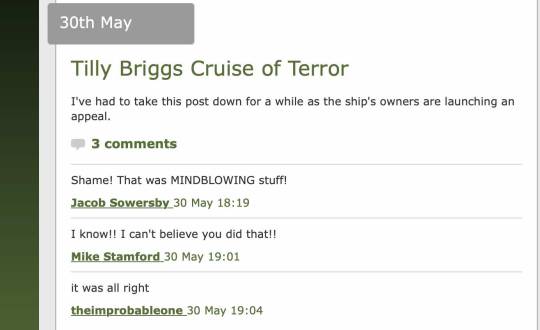
So I can’t help thinking this sounds like a hint to us about the Estate and a certain ‘ship’ which is still partly in their (legal) power and control. In fact, it wouldn’t surprise me if the whole show - on the meta level - is partly meant as a satirical commentary on how Holmes’ and Watson’s characters, and therefore also their relationship, have been treated the last 100+ years by their ‘owners’. A treatment where I believe the hetero norm has always ruled, and where Andrea Plunket’s quote above indicates that homophobia regarding Holmes and Watson is still tied to legal obstacles.
Charles Augustus Magnussen also talks about ownership at the beginning of HLV (thanks for the quotes, Ariane DeVere): “Of course it isn’t blackmail. This is... ownership”. And later in the episode: “It’s all about knowledge. Everything is. Knowing is owning”. In fact, quite a bit of emphasis in HLV is put on Magnussen’s ‘ownership’ of characters people: “I’m a businessman, acquiring assets. You happen to be one of them!” Apparently - as this new lawsuit shows - it’s even possible to make money out of Holmes’ emotions.
@catwillowtree also pointed out, in another additional thread to @raggedyblue’s meta, that Eurus’ burning down Musgrave Hall – the family estate - in TFP also seems like a reference to the ACD Estate. I would add to this, saying that the bomb that didn’t go off in TEH and the “patience grenade” that did go off in TFP might have to do with the same issue. What would happen if the ‘bomb’ of Johnlock would go off before the relevant stories are legally in public domain? Most probably another lawsuit from the Estate, which might become very expensive.
Come to think of it, in TGG Greg Lestrade mentions an estate agent, when Sherlock receives a text message and a phone call on the pink phone from Moriarty: “What the hell are we supposed to make of that? An estate agent’s photo and the bloody Greenwich pips!” Well, if the Estate agent is somehow connected to the five pips, that fandom theory of the pips representing five series in the show comes to mind... For every pip in TGG there’s a victim covered in explosives; a huge bomb threatening to go off. (The third bomb did go off in TGG, but in S3 Sherlock found the ‘off-switch’ in time). If the fifth bomb is to explode in S5, I bet it won’t be until the relevant stories are safely in public domain. 2023?
More wild speculation while I’m at it: Maybe Sherlock and Ajay’s smashing of Thatcher busts in TST also ties in metaphorically to the same topic? The Thatcher era was not easy for LGBTQ people. There are several owners in TST whose Thatcher busts need to be smashed in order for Ajay’s lost memory stick to be recovered. AGRA is referred to as Ajay’s and Mary’s “family”. The memory stick contains personal information, ‘who you really are’. Could be read as if the info of who Sherlock Holmes really is can only be released once certain obstacles are overcome...
In another interesting meta from last year by @yeah-oh-shit (X), they mention the secret underground station at Sumatra road in TEH, where Howard Shilcott tells Sherlock and John that “They built the platforms, even the staircases, but it all got tied up in legal disputes, so they never built the station on the surface.” So maybe S5 is basically already written? It would make sense to me if the long hiatus we’re facing right now has a far more logical reason than the excuses Mofftiss have presented in interviews - the risk of legal disputes with the copyright owners.
Tagging some more people who might be interested: @gosherlocked @ebaeschnbliah @sarahthecoat @sagestreet @thepersianslipper
ETA: I have corrected some details about the copyright owners in this post; thanks @devoursjohnlock for pointing them out!
130 notes
·
View notes
Text
Queerbaiting? Nahh
Ok I’m that kind of Johnlocker who often started thinking that maybe Mofftiss are just doing queerbaiting with Johnlock and that it’s only a bunch of gay jokes in a crime series. But then I realized that if I were them and I wanted to have some more views and make lgbtq+ people more curious about my show, I would act in a totally different way.
Moffat and Gatiss have absolutely no problem with denying the existence of Johnlock (or even any other ship) when people ask if it’ll ever be canon. They’ve basically said things like:
Fan: “Have you thought about writing Johnlock in the show?”
Mofftiss: “Yes but no, this is not that kind of show bye luv <3”
They just denied everything and yet they put thousands of Johnlock scenes, subtext, symbolism, mirrors, metaphors, codes and things that TJLCers found out because they were too obvious.
If I wanted to do queerbaiting I would have done everything but that. I would have said “Hehe! You’ll see!” or “Just keep watching and you’ll find out!”. But they gave us symbolism and subtext, then they denied it and told us we just have too much imagination. This. This is the elephant in the room. Mofftiss put a gigantic elephant in a room and then ignored it. If it was queerbaiting they would have done the exact opposite thing: keep implying that there’s an elephant in the room, when it’s actually fake and nothing is there. They’re not trying to make us more curious or giving us hope, they’re almost saying “no, go away from my crime series (in which I put lots of gay scenes but shhh), I don’t care about having an lgbtq+ public.”
I said this also in one of my previous metas: Moffat basically told us that it (Johnlock) is like a surprise party, if we asked if he’s organizing one (since he left some hints that made us think so) he’d still say no, because if he said yes he would ruin the surprise, and we wouldn’t even like it, even though we got the hints. Queerbaiting is like making us believe that there’s going to be a surprise party, and also leaving the hints, but then disappointing us because there’s no surprise. Mofftiss don’t act like that.
They’re trying to hide it from us and most importantly to make us think we’re wrong, to make us lose all the hope and stop making theories, that’s not what a queerbaiter does. A queerbaiter tries to get you in their trap, Mofftiss are trying to stop us from getting further. But we won’t, we’ll keep hoping, making theories and finding all the proofs until they’ll have to admit that the elephant is real and it’s there, until “Some day the true story may will be told.” Get ready to believe.
#bbc sherlock#sherlock holmes#sherlock#ship#johnlocked#johnlock#the johnlock conspiracy#tjlc#tjlc explained#queerbaiting#mofftiss#steven moffat#mark gatiss#the elephant in the room#gay otp#otp#gay#lgbtq#lgbtq+#martin freeman#benedict cumberbatch#bbc#john watson#holmes and watson
34 notes
·
View notes
Text
Chapter 3 – Death Cannot Stop True Love… [HLV 1/1]
… All it can do is delay it for a while. Whilst Westley’s hair in that film horribly resembles my lockdown hair, more happily the fantastic movie The Princess Bride continues to resemble Sherlock – there was a very popular meta on the links between the two for a while there that can be found here: X.
This chapter is going to run through EMP theory as it begins, covering mainly the second half of HLV. It’s important to note, however, that the first half of the episode provides a lot of clues about the way certain images function in the mind palace, which backs up EMP theory quite nicely – the last ideas that Sherlock has going around in his brain before he is shot inevitably swirl around in there whilst he’s unconscious and form an important part of the train of association.
I toyed with the entirety of HLV being in EMP, because parts of it are weird (think Magnussen pissing in Baker Street, or the fucky MP glasses), but I ultimately dismissed it, though I’m willing to be challenged on this. I dismissed it as being a part of Sherlock’s post-wedding drug abuse for a few reasons. The first is that we only see Sherlock wake up from his drug abuse, not go into it – EMP is something that’s going to be hard for viewers to swallow, and Mofftiss are actually quite good at dropping big hints and drawing attention to the important bits along the way. That’s really not the case in the crack den, which is well integrated into the plot and has no traces of Sherlock’s mind palace. The second is that, actually, the premise of HLV is far too integrated into the main plot of s3 to be entirely MP – the CAM stuff and Janine at John and Mary’s wedding could be Sherlock extrapolating, but it seems like a bizarre extrapolation to make given how much fuckier the s4 mysteries are (London aquarium, Culverton’s drugging, the entirety of TFP) - the only MP fuckiness we get in HLV really takes place after Mary shoots Sherlock, like the restaurant scene with CAM or the Appledore Vaults being his MP. Mary shooting Sherlock also has far too many throwbacks with Norbury and Eurus in s4 to be completely irrelevant. So, with that in mind ��� let's go.
To understand what’s going on in HLV, we’re going to need to understand the metafiction going on – and this is where a good knowledge of acd canon comes in. Most of HLV isn’t actually based on His Last Bow, but on Charles Augustus Milverton X. To give a brief synopsis (although I would thoroughly recommend this story, not least because it’s incredibly queer) Holmes is engaged by Lady Eva Brackwell (Lady Smallwood in our world) to stop Milverton (Magnussen) from showing her husband some indiscreet letters she wrote to a squire some years ago. Holmes realises he can’t get Milverton under the law, so gets engaged in disguise to Milverton’s housemaid (Janine) in order to break in and burgle him. Watson agrees to come too. When they break in, Milverton is talking to another woman (Mary) who shoots him in revenge for Milverton’s use of information causing her husband’s suicide. She escapes and Holmes and Watson burn all of Milverton’s letters, and then escape. They refuse to help Lestrade solve the murder.
All of this lines up pretty evenly with HLV until the moment when Sherlock is shot. Admittedly there are minor changes to the Smallwood plot line (who committed what indiscretion), but these are minor and seem to be to make the plot work in the modern day – nobody cares if someone has a working-class ex anymore. But we get huge canon divergence from the shooting scene onwards.
Sherlock believes that Mary is Smallwood because of her perfume. This is a rational enough assumption to make, but it’s not just based on perfume. We know that since Lady Smallwood has engaged Holmes, Lord Smallwood has committed suicide – so she fits the profile of the blackmailee from Charles Augustus Milverton perfectly. She fits the patterns that Sherlock expects to see in his deductions. Mary does not – our first point of canon divergence. It sets up a painful parallel between John and Mary and the couple from Charles Augustus Milverton; they never name the indiscretion that led the husband in acd canon to kill himself, and given the company that Doyle kept (Wilde, Douglases including Lord Francis Douglas, who was thought to have killed himself shortly after being ennobled – much like the unnamed nobleman - because of his sexuality) it seems reasonable to assume this silence is euphemistic. Let that mirror linger in your thoughts, because it’s important.
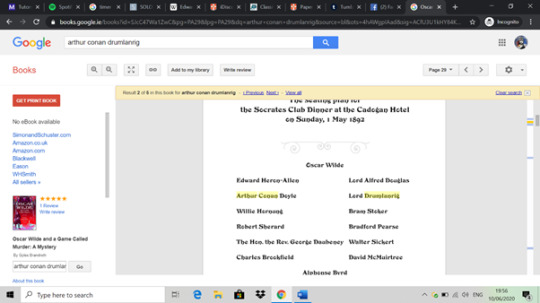
Mary is the housemaid who has broken in to shoot Magnuessen/Milverton – so far so good. Although Holmes was hidden in the original stories, he was still present and sympathetic; the logical canon-following route here is for Mary to kill Magnussen, and that’s exactly what Sherlock expects her to do – but she doesn’t. She shoots him instead, and Sherlock can’t understand this. As we’ll see, he spends the rest of HLV trying to justify this pattern-breaking to himself, and is finally unable to.
Once Sherlock has been shot, the Molly/Anderson/Jim/Mycroft section which sets up EMP is fairly self-explanatory – the only thing I want to dive into here to point out is that this is the first appearance of Jim in the EMP, as a kind of restrained beast, and his most pivotal line is the fear he represents: John Watson is definitely in danger. This sets up what he’s going to represent for the rest of the EMP sequence. Other people have delved into the rest of this section before, and extensively – I don’t have a huge amount to add. We know John is in danger from Magnussen, because that’s ostensibly why Mary was there, but she didn’t seem to care as much as the housemaid from the initial stories did. We also know from the original stories that Magnussen has the power to make John suicidal, but in this story he hasn’t yet – but because of this, Sherlock senses that the danger is much more than a loss of reputation. It’s heart-re-starting-ly important.
The next bit I want to jump into is Sherlock’s conversation with Janine in the hospital. A lot of people have argued that this is one of the only real moments following Mary shooting Sherlock, and that Janine fiddling with the taps is part of what induces Sherlock’s fucky mind palace wanderings. I don’t buy into that theory – the more I think about this scene, the less it makes sense as being real in the context of EMP theory. The first reason for this is, very simply, that it means Sherlock has woken up after the realisation that John is in danger. The driving idea behind EMP theory is that Sherlock has to spend s4 making that realisation and trying to wake up – having that actually happen at the very start of EMP, only to be aborted, is bizarre. Secondly, it completely negates the idea that Mary’s actions are possibly fatal, which is a theme that reverberates through s4 (and all the chapters of this meta) - if Janine fiddling with the taps is what pushes Sherlock back into his MP, then by rights Janine should appear in S4, instead of the preoccupation it has with Mary and shooting.
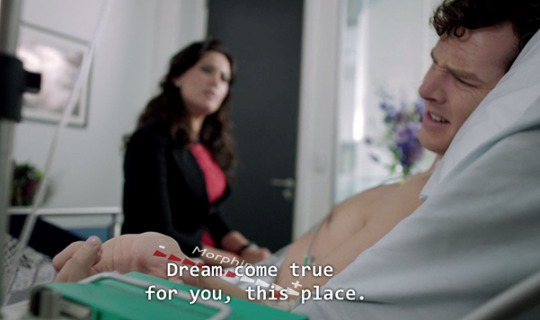
What, then, is going on here? Sherlock is told by MP!Jim that John is in danger – and then imagines he wakes up. In his MP, Janine appears, puts him in pain and puts him back under. She, then, is the reason he can’t wake up. Janine has been Sherlock’s beard, and it’s quite possible to read her as being a symbol of Sherlock’s repression, but I think that’s a simplification; discounting TAB, Janine doesn’t appear again, and even then it’s minimal, whereas s4 is literally built around the concept of repression. As I go into in a lot more detail in chapter 9 (X), which is about the use of drugs to mask our darkest secrets in TLD, it’s the drugs that represent Sherlock’s deepest repression, in this case the morphine that he uses to mask the pain. Having Janine be the one who is fucking with the taps simply makes the link clearer, particularly when we might not associate hospital drugs with the other kind of drugs that Sherlock normally takes to take the pain away – however, it’s clear that the drugs that anaesthesise his pain do the same job as Janine – hide his queerness. Janine turned vindictive causes him intense pain, and he needs to turn back to the drugs to slip back under. Bearding was always temporary in this show, at least for Sherlock; drug abuse is a consistent problem and becomes a running metaphor for Sherlock’s repression in the EMP.
Janine being a symbol here helps me to make sense of the couple of lines that didn’t make sense to me otherwise. If Janine were real, getting rid of the bees would be awful – she gets the future our boys want and she destroys it. But if she’s a symbol in Sherlock’s mind of that bearding, and a barrier to waking up and saving John, then her sitting there, pushing him back into a coma and tearing away the future he longs for – that makes a lot of sense, and is 100% more devastating. The other line that has never made sense to me is Janine telling Sherlock that he could have just been honest with her, that she knows what kind of man he is. This line doesn’t make sense unless she means a gay man. I would be really interested to know how else this can be construed. This line can make sense in the real world if we accept that Janine is working with Mary – which must be true anyway, because otherwise Mary can’t get to CAM – and also wants Sherlock to get involved in that situation, although God knows why – the Janine-is-Jim's-sister theory feels like it might work here, but I don’t think there’s enough evidence for me to unravel it. If Janine genuinely does open the door out of affection for Sherlock, regardless of her relationship with Mary (the two aren’t mutually exclusive), Janine knowing Sherlock is gay doesn’t make sense at all - but Sherlock’s mind turning that beard back on himself to mock him? Absolutely makes sense. Remember, this is the loathing that pushes him back into the deep coma – this scene is really pivotal.
Sherlock vanishing from the hospital bed, despite being nearly dead, is pretty much medically impossible, and is probably the first impossible thing that we see happen in EMP – but it should be a red flag that that’s where we are. It’s also nice and symbolic of his movement away from that surface level, a level which we see him return to briefly in the hospital scenes in TLD when he realises his place in John’s heart. Touching stuff.
We then move into Sherlock’s interrogation of Mary behind the facade of the houses. In case we missed the reference, Mofftiss actually have the phrase the empty house used, a reference to The Adventure of the Empty House X, the story on which TEH is meant to be based. It is telling, though, that very little of The Empty House features in TEH, other than that it is the moment when Sherlock comes back. Others have commented on the minor relevance of Moran to the story and hypothesised that Mary is the real Moran – I think that the facade scene presents that as a genuine possibility. I don’t want to overstate the similarities that The Empty House bears to HLV, but Mofftiss do draw attention to it – and there is something interesting about the criminal being revealed by Holmes only after the criminal thinks they’ve killed him. That bears a particular relevance to Mary – and links her to Moriarty as his potential second-in-command. The most important link, however, is that in The Empty House, Holmes tricks Moran into incriminating himself by creating a dummy Holmes for Moran to shoot at. It’s true that Mary doesn’t shoot at dummy Sherlock (John) here, but the dummy is set up to incriminate her, and she acknowledges that this is a basic trick, one she should have known before. The links of the empty house and the dummy, both made explicitly familiar in the dialogue, do a lot to link Mary’s character to acdcanon!Moran.
This, however, all takes place in Sherlock’s brain. In several scenes, we’ve had Sherlock engage with two concepts in his mind that he can’t know about; one is Sebastian Moran in The Empty House, which only takes place in ACD canon, but even if you think that link is tenuous, he’s also engaged with his canon future as a beekeeper in Sussex. And then, on top of this, there is the problem of Mary versus the housemaid from Charles Augustus Milverton. My suggestion is that these aren’t just jokes put in by Mofftiss to say look-we've-read-the-books – Sherlock's mind is actually using the bees from the original stories to negotiate his relationship with his sexuality, and The Empty House to try to understand Mary’s motives. This is confirmed on a grand scale by TAB – he goes back to ACD canon!Holmes to navigate the problems of his everyday life – so Sherlock is not just a modern Sherlock Holmes, he is on some level self-aware of his existence as a fictional character. As we’ll see going through, his awareness of the existing canon of stories is fascinating and tied up in his repression – how do we break out of canon character, and what has canon been hiding, are two questions which repeatedly come to the fore. Mary is the character who most consistently breaks these canon expectations – a lot of TAB is about this – and that’s something he really struggles to contend with, and is one of the reasons that the reality of canon!verse starts to break down in TAB – it's not sustainable, and it doesn’t tell the full story. These two moments early on in EMP show him negotiating his identity and his experiences in his mind in relation to what he knows about Sherlock Holmes – an early iteration of a theme that’s going to become much larger.
The first thing Sherlock does after being pushed under by Janine is go and interrogate who Mary is in his brain, whilst also working out her impact on John. Sherlock comes up with a pretty reasonable background for who she is in the Leinster Gardens scene, but this isn’t really what’s important – it's the The Empty House parallel which sees him subconsciously making the link to Moriarty. ACDcanon!Moran, unlike bbc!Moran, was the last assassin sent after Sherlock from Moriarty’s network – this means that the dismantling-Moriarty's-network plot from the start of TEH becomes more than a fill-in-the-blanks montage, it means that the show retains its key villain to the end – it structurally works, in a way that other plot-level ideas haven’t. [@ eurus holmes. anyway]
Something that’s interesting here, is that there is a real shift away from the implications of the dummy in acd canon. In acd canon, Moran attempts to murder Holmes, which is a way of catching him in the act and sending him to prison. This is about catching Mary in the act in a similar sense, but it’s about being caught by John. This is interesting, because it shows that Sherlock’s priorities have shifted from acd canon – or, more accurately, we’re seeing the priorities that weren’t reported in the Strand. The emotional impact on John is far more important than the legal ramifications – and this in itself is the shift which the creators have been pretty emphatic about taking from the original stories.
John often represents the heart in Sherlock’s MP – I haven’t quite worked out how to distinguish between heart!John and Sherlock’s imagined John yet, and am flying on instinct, which is definitely not sustainable! But it strikes me that a lot about HLV and TST is about understanding the impact of this shooting on John, and that therefore this needs to be John as Sherlock imagines him.
We’re still with Sherlock’s imagined John as we move into “the Watsons’ domestic” in 221B – but, as so many have pointed out, for a domestic between the Watsons, they feature very little as a couple! The core emotional dialogue is often said to come between John and Sherlock, but despite Martin Freeman’s excellent performance in this scene, that’s not strictly true either. The centre of this scene is Sherlock explaining John’s love for Mary. It’s not about the Watsons – it's about Sherlock understanding what’s going on, which fits into EMP theory exactly. I firmly believe that Sherlock begins his EMP trip believing that John loves Mary, and slowly unravels the threads to realise that it’s actually him John cares about, and this scene is testament to the first part – the deduction that he makes about John loving Mary is flawless, but despite explicitly referencing himself, he fails to see the obvious – hiding in plain sight - that such a deduction could equally be applied to himself. He’ll get there in the end (TLD), but right now, that’s what makes this scene so painful for me.
Turning Mary into a client is about moving into the rational part of Sherlock’s brain, trying not to let emotion cloud it, even though it’s incongruous and unworkable. We’ll see Sherlock’s brain and heart slowly integrate, finally uniting in TFP, but for now he thinks rationality is the way forward. This also helps us to set out a framework for what happens with Mary in the EMP – clients are deduced, worked out, they present problems - never forget Mary being framed as the abominable bride – and that’s what is happening here. She is the first problem of the extended mind palace to be solved.
But this scene is metafictional too, because it gets to the core nub of Mary – as John puts it, she wasn’t supposed to be like that. And, canonically, he’s right. If we follow acd!canon, Mary is not meant to be an assassin, but more importantly for HLV, she’s also supposed to save her husband. She’s meant to be all-out devoted shoot-Magnussen type – but instead she shoots Sherlock. When John says that, then, it’s not just a nod to an updated show – it’s a genuine problem that Sherlock has to contend with, because in neither acd!Mary scenario nor housemaid!Mary scenario is she obeying the framework of a woman who loves her husband. This failing marriage is not in the stories, it’s not supposed to happen, and things that come outside of established canon come outside of Sherlock’s pre-programmed mould – we can think of this as a way of thinking about our own childhood programming to be straight/cis/etc., but in a more self-conscious, literary way!
And then, Sherlock’s response: you chose her. That’s why she’s different, and this is actually a vital line. It suggests that the programmed canon that we know these boys follow, because they have to – that’s not what this show is about. Our characters are agents, and for the first time in history, their lives are dictated by free choice. John chose this Mary, not the Mary of canon – and Sherlock himself makes explicit the comparison between John choosing Mary and John choosing Sherlock. The heart of the story is the choices that can be made for the first time. How incredibly exciting.
The ambulance people coming into Baker Street (seemingly without the door being unlocked?) is, I think, the real world blending with the mind palace world here – although not paramedics, there are people currently trying to restart Sherlock’s heart, and this scene shows us that he’s trying hard inside his brain, he’s working with them – he really doesn’t want to die. The idea of the outside world taking on a physical form in his MP is not incredibly hard to believe – I really recommend watching s02e02 of Inside No. 9, written by Mark Gatiss’s League of Gentlemen co-stars Reece Shearsmith and Steve Pemberton, an episode which pulls this off marvellously, although with a big cn: for death. In this moment in Sherlock, we get the lovely lines
Sherlock She saved my life.
John She shot you.
Sherlock Eh – mixed messages, I grant you.
These lines are delivered so quickly between the two of them that it feels like Sherlock is talking to himself, like Mary isn’t even in the room. The way BC delivers ‘mixed messages’ – it’s as though there’s still a problem, bbc!Mary hasn’t been reconciled to good!Mary yet.
The next section on our whistle-stop tour is Christmas with Mummy and Daddy. Plenty of people have pointed out how Mummy and Daddy are very clear mirrors for our boys – you can see here X, or you can just look at this picture to be honest.

The Christmas scene doesn’t make sense in the timeline – there's a great timeline diagram here X that shows how much fuckier than any other episode HLV is (excluding TSoT and everything post s3), and that doesn’t even take into account all of the jumping between scenes that we see in the Christmas bit. Jumping from Leinster Gardens to Christmas to Baker Street and back several times is chronologically odd and doesn’t seem to serve a purpose, except to show that the rift between John and Mary has lasted for months – and even that didn’t need such a complex interweaving of flashbacks that is so at odds with the show. It’s also at odds with the plot – why on earth did Mummy and Daddy invite John for Christmas, if he’s no longer living with Sherlock, and even stranger, why did they invite Mary if John and Mary haven’t been on speaking terms for months? This isn’t the way human beings behave. There’s also an old adage in writing which says to never move a conversation to a new place – it’s a waste of time and space. Have the conversation here, or have it there. Don’t abort it for no reason – and that’s exactly what they do here. Mofftiss are pretty experienced, and I’m inclined to believe that they’ve done it for a reason.
So, in MP terms, why does Sherlock gravitate towards his family home instead of Baker Street as the location to unravel John’s relationship with Mary? Bearing in mind that this is a continuation of the interrogation of their relationship, it seems interesting that he chooses to juxtapose them to the only loving couple we see in this television programme. Like a lot of parallels in EMP, this is something that our dads choose to draw our attention to; Daddy says to Mary “you’re the sane one”, as though every happy relationship has a sane one and a mad genius. And they draw attention to it again – Mary points out that Sherlock brought them here to see a fine example of happily married life.
Except, of course, like so much of this interrogation of John and Mary’s relationship in HLV and onwards, this doesn’t quite ring true. Because, of course, there is no mad genius in the Watsons’ relationship, and in terms of sanity Mary is certainly not the sane one. It’s like Sherlock is trying to fit them into the domestic bliss mould, but they just won’t quite go there. The comparison won’t quite be made.
The conversation between Sherlock and Mycroft, who has been established as his brain in TSoT (I cannot find this meta! Where Mycroft is brain and John is heart! Can anyone help?), is pretty straightforward – the brain is interrogating Sherlock’s obsession with the Magnussen case and why he can’t just let it go, and the emotion we see here from Sherlock is more powerful than pretty much anything we get in real life. I actually think this scene is one of the most vulnerable moments he has in the show – and there’s no way that vulnerability would be to Mycroft in real life. There’s also, crucially, no reason why MI6 should actually want Sherlock dead this early. It’s another tell-tale sign that the surface plot doesn’t make sense – we should be looking deeper. Sherlock has just brought down a terrorist network – MI6 should love him. What Mycroft is actually putting forward is that already, way before Sherlock kills Magnussen, pretty much as soon as he enters EMP this is a two-way fork. He can choose to die at any point. But he doesn’t.
There’s something that I really don’t understand here, though, which I think is important – Sherlock drugging the family with the help of Wiggins. This motif of drugging is something which comes back time and again to represent Sherlock’s repression – but here he’s not drugged. Wiggins is also a symbol of repression, but again he’s completely sober. Any thoughts on this would be much appreciated – I don’t like loose ends, and I don’t believe that another use of drugs is insignificant!
Then we have a quick flashback to the canteen scene. A lot of EMP theory has drawn on the canteen scene, and how phenomenally dreamlike the entire situation is. There is no way this can take place in Speedy’s – in terms of the timeline, it can’t even take place in the hospital canteen! However, it seems to draw on a mental image of Speedy’s because of the visual similarities between them (referenced in this meta, although this meta makes the argument for the reality of the scene X). Magnussen doesn’t seem to even have a bruise, despite being battered by Mary’s gun. This scene cannot exist. Magnussen picking at Sherlock’s food has often been seen as a metaphor for Sherlock being sexually assaulted whilst comatose, which is something I buy into – the food=sex metaphor has been striking from the beginning, and it suits Magnussen’s power play. It’s also quite possible in this scene that Sherlock thinks that everything fucky is real, and the absolute fuckiness of this scene draws it out – this is the scene that foreshadows the realisation that Magnussen is working from his MP, and of course that’s a realisation that Sherlock needs to make himself. The scene opens with a moment of dislocation – is this the hospital canteen or not? – and is about Sherlock working out what’s happening to him.
What’s really striking is that John has brought his gun to Christmas lunch, however. Bear in mind John-being-suicidal is the realisation that Sherlock is going to come to in TLD, but it’s prefigured here. We haven’t seen John’s gun since ASiP, when it was used to indicate that he was suicidal. It’s suddenly come back, but Sherlock misses its significance – he expects John to have it, but he doesn’t focus on the significance of the gun itself. He’s still thinking in terms of Mary and Magnussen. What’s significant is that John throws him the coat, which has the gun weighing down in its pocket. This prefigures that scene in TLD -
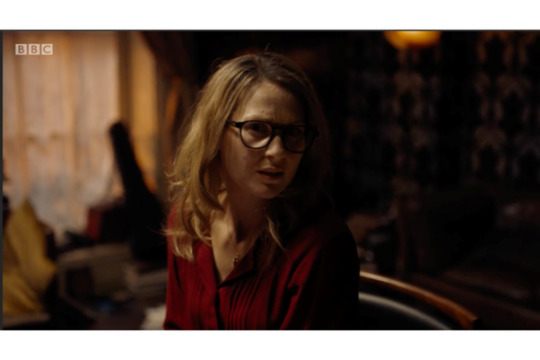
Faith!Eurus, who is a mirror for John in TLD, is thrown the bag, and we see Sherlock weigh it and then realise there’s a gun in it – too late. A bag is the female equivalent of a coat (*cries about pockets*) and the throwing motif with the heavy gun inside it is a clear link between the two moments. Sherlock didn’t recognise the significance of the gun in the first one, possibly because he couldn’t process the situation without mirrors (more on the importance of Eurus as a series of heterosexual mirrors later). When he realises in TLD that he’s made a mistake, that there’s something he’s missed, the implication isn’t that he’s missed it in his analysis of Faith!Eurus, because in no sense of the word does Faith!Eurus exist. What it means is that he missed it in his first, cursory analysis of John. Not the heaviness, but exactly what it meant. The symbols of John’s suicidal ideation start to appear and threaten to break in right up until the end of TLD – this is arguably the first point we start to see them.
Hypothesis theory – that Sherlock is running simulations in his MP – is not something I hold with through all of EMP, but I do hold with it to the end of HLV. It’s something that we know Sherlock does in real life because of THoB, both in acd!canon and in bbc!canon – he stages something in order to prove it to himself. In this case, he’s not able to see the war between Mary and Magnussen play out, so he’s running it himself, and we’ve already seen him desperately trying to prove Mary’s innocence, and more than that her love for John. But this trip to Appledore will prove that impossible.
It’s possible that the Appledore Vaults being Magnussen’s MP is the first time that Sherlock recognises that this is a simulation, and that this isn’t real. He certainly looks incredibly distressed, although that could also be because of the immense danger he’s put John in. However, the vaults being a mind palace doesn’t make sense as surface plot, as so many have pointed out – we’ve literally seen the letters before. (I grant that Magnussen could be bluffing, but it seems odd to draw attention to the letters having a physical form nevertheless.) However, the fact that Magnussen’s MP is in vaults underground is really interesting – imagery to do with going deeper and deeper into Sherlock’s mind is pretty much always falling or sinking, as seen in both TAB and TST in particular. That idea of descending into one’s mind is prefigured very neatly here, and should get us thinking about height generally (I’ve talked about the reverse side of this in the previous chapter X). I also think, although am not an expert on sound, that we can hear a slight eerie dripping when Magnussen walks through the vaults, which ties thematically to the water that is linked to falling/sinking in the rest of the EMP.
Fast forward past the face-flicking, and Sherlock shoots Magnussen. This is the culmination of the metafictionality of the episode, and I think it’s really fantastic. The simulation that Sherlock has run to prove that Mary loves John has failed, because the only way to save John is to kill Magnussen and he’s the only one who can do it – so in short, Sherlock becomes the housemaid, not Mary. He takes on the role, and it breaks canon completely. He’s supposed to be above that, disinterested – but instead he becomes the woman who kills out of love for her husband. He is no longer filling the traditional role of Sherlock Holmes in the narrative. He has disproven the point he needed to make – and so, as brain!Mycroft seems to suggest, deeper waters still. The cut to little Louis Moffat screaming in the firing line instead of BC is another hint that this isn’t real – we might just about accept it here as showing Sherlock’s vulnerability, but given that the entirety of series 4 is about childhood trauma coming back up, the resurgence of a screaming child of Sherlock as he recognises his new place in the narrative is brutal. (Yes, Sherlock has a lot of gay trauma – we’ll find out more when we meet Eurus.)
Eurus, incidentally, comes up here – you know what happened to the other one. I want to home in, though, on Mycroft’s line about Sherlock, that there’s no prison that he could be incarcerated in. This is a bizarre comment, given the events of TFP – it could just be sloppy writing, sure. Or, again, these inconsistencies are pointing to something else, that Sherrinford isn’t a real place and that Sherlock’s death sentence is not a sentence, but self-imposed.
So much has been said, so eloquently, about the tarmac scene, that I don’t know that there’s much more that I can say. The importance of the plane as being Sherlock going to his death is really important as an image that will repeat later – again, see previous chapter X. I’ve also pointed out that there is no point at which Sherlock is told Moriarty is back, yet he seems to know it automatically – another suggestion that this is EMP, and there’s a lot more going on.
The final thing I want to focus on in this episode, though, is the east wind. The east wind is referenced in His Last Bow, which gets very little coverage generally in HLV. His Last Bow is (I believe) the final Holmes story, and the east wind that is coming refers to WW1 – Holmes tells Watson that there is an east wind coming and Watson thinks he means it’s cold, and Holmes laughs and jokes that Watson is a stalwart who will always be there. This is a touching moment to end the stories on, and might remind us of the It is always 1895 poem that will become so important in TAB. Except, this time, John accepts that there’s an east wind coming – he references it repeatedly, actually, as a threat, both here and in TFP. The east wind is the wind of change that comes through the changing years in acd!canon. This seems particularly important here – the social changes between 1895 and 2014 are vital for the next episode, highlighting the idea that the update of the show is a really central part to it. There’s no world war ahead of Holmes (please God @2020) so the wind of change must be referring to something else… I really couldn’t possibly comment as to why the change of time period might be so important!
This chapter has been a long one, but I hoped it help to set up EMP theory on firm foundations. We’ll move into TAB next – see you there!
#tjlc#thewatsonbeekeepers#meta#mine#my meta#chapter three: death cannot stop true love...#hlv#bbc sherlock#johnlock#bbc johnlock#mofftiss#acd#gosh i was rereading this chapter and boy am i proud of it#metatextuality is my fave thing#what a sexy episode this is
43 notes
·
View notes
Text
The TJLC Debacle: 3 years out from S4 and counting; the copyright mini-theory; so much salt I’m bloated; but in the end, there is peace (I love you Johnlockers)

Ugh, don't even talk to me about Mary.
Don't even talk to me about the way Mofftiss have said they're sick of responding to fans on the subject of Johnlock. Of how they've said they're "not telling anyone else what to think or write about them" (as if they could stop us; as if they even own Sherlock themselves. Do keep reading, because this point becomes much more relevant and in-jokey later on). Don't even mention how they've bitched and whined incessantly because--god forbid--fans got *really really* into their show and emotionally invested.
They're so eager to discount all the beautiful little moments they wrote as accidents. And Arwel, who planted all those props, continually demonstrates that he's on their side (a not-very in-depth-analysis of his Instagram account and the way he interacted with fans towards the beginning of the pandemic showed as much, but I think maybe he’s grown a bit wiser and quieter since at least in terms of Johnlock and all things elephant-related. I don’t know for sure because I stopped looking.)
Anyway--they'd actually prefer for us to celebrate our own intelligence, is I suppose a charitable way of looking at it: our ability to make connections between things in the show; our metas on symbolism; our insightful fanfic; etc., and denounce them as the bad writers that they ultimately are.
More under the cut.
(This post may be of interest to you especially if you came to the fandom a bit later: multiple links to things of relevance/quotes/explanations appear both within and at the end of this entry.)
Because what makes a writer good?
Well, an ability to make people feel an emotional connection to their work, for one. I know this is just my own perspective, but if not for Johnlock, all my emotion about the show would evaporate. There wouldn't be much else there. Other people might get something, but I wouldn’t. Is some of the writing witty and entertaining regardless of any inferred/implied Johnlock? Yeah but, eh, a lot of shows have some good writing and I just don’t give a damn about them.
What makes a writer good?
Not making promises to the reader/viewer that they'll never keep. Plot holes, leading dialogue ("There’s stuff you wanted to say...but didn’t say it.” “Yeah”) never followed through on, puns that are apparently, I suppose, unintentional (e.g. "'Previous' commander?" "I meant 'ex'").
Uh, not writing continual gay jokes that aren't actually pointing toward the inference that people are making them because there's actually something going on there under the surface. (How about just don't make those jokes ever.)
Not being, apparently, oblivious (? questionable) to the queerbaiting they're engaging in *as they’re writing it.*
Acting like their LGBT audience is in the wrong/the bad guy, instead of choosing to remain respectful in the face of dissent. Instead it's just, "we never wrote it that way" / "We never played it that way."

A lot of those other mildly witty shows don’t actually blatantly drag their most passionate fans face-down through the mud the writers themselves created. Imagine that.
I'm not even a fan of Martin Freeman anymore, for the way he handled the whole thing (getting angry, the comments he made about how the fans made Sherlock “not fun anymore”...apparently Martin’s packing up his crayons and going home?)...no offense to anyone who is still a fan of his. I don’t make it a habit to drag him. I do to some degree understand his frustration with having the whole situation taken out on him--he’s just an actor in the show--but I simply wish he’d remained as cool and professional about it as Benedict Cumberbatch instead of pointing at the fans. You’re pointing in the wrong direction, mate.
What also irks me at the end of the day is this: the subsection of people who legitimately responded badly to the TJLC/S4 debacle and went above and beyond to harass the writers and actors/actresses on social media are *few and far between*, but we've been lumped in with them by what feels like...everyone, Martin included. TJLCers/Johnlockers (not the same group, but often treated as such) have been made to look like a bunch of rambunctious, immature, demanding children time and time and again in the wake of S4.
They'd rather, what, suggest John was so in love with Mary? THAT was the relationship they wanted to uphold in that show as so significant and...what, a demonstration of how honorable it is to respect your heterosexual relationship despite, you know...ANYTHING?
Yeah sorry, I don’t believe in that. John’s text-based affair, whether a disappointment for some as to his supposed character, was a very human reaction and I kinda sorta feel like I would have reacted MUCH more strongly than that had I been John. But nope. He stayed with Mary and was *ashamed* of his wandering eye. Ashamed that maybe he wanted to be admired by someone. I can’t think of a scene, off the top of my head, where Mary ever interacted with John without belittling him in some way--if not with words, then with consistently patronizing glances.
The message here is that heterosexuality is not just acceptable, but VALUABLE, however it manifests--but god forbid anyone see a queer subtext. (Why are lgbt+ writers some of the very WORST offenders where this is concerned? And they defend it! Is this childhood nostalgia/Stockholm Syndrome of the very fondest variety or what? Gay angst is all they got if they got anything at all, so it’s still good enough as far as “representation” goes?)
They really want to tell the story of John as so emotionally/mentally fucked up that he surrounds himself with unstable people time and again. They never give any reason *why* he might do that (which they could have done even soooo subtly), or delve into his past--just, apparently it's okay to assume that Sherlock's comment about "she's like that because you chose her" is exactly that.
No. Sherlock and Mary are NOT the same. Not...*remotely*!
Mary is underhanded and evil. She lies. She manipulates. She schemes. Her “love” is based on selfishness, and her assumption that John is a simpleton and hers to mold. She's in it for herself.
Sherlock hides. He prevaricates. He feels. He loves John. He does fucked up things in the name of love, but always for the benefit of those he loves. When he screws up, which he obviously does, it’s painful to us as the audience because we see that it is painful for him when he recognizes and regrets it.
I have never seen Mary regret anything. Those crocodile tears at Christmas? More manipulation. Inconsistent with anything else we were shown about her as a character.
To even think for a SECOND that people could ship Mary and John and mentally condemn John for cheating on Mary AFTER SHE SHOT HIS BEST FRIEND...as if marriage is the be-all-end-all free pass in which every sin must be forgiven until the end of time...as if John broke any covenant with his wife beyond those she broke from the very moment she walked into his life *with an entire fake past.* Is just. Well. It's asking us to accept gaslighting as healthy, loving, normal, *preferable* behavior, so...given the source that message is coming from, it's all a bit meta.
THAT. Is insanity. Maybe Mofftiss are the sociopaths.
How these men could write characters they themselves understand so little (or tell us they understand so little because their emotional maturity has yet to surpass that of the average three-year-old’s), I will never know. I can only imagine that they have absorbed, by osmosis over their lives, real and nuanced human behavior...then churned it back out again in their writing unaware, a bit like psychopaths who teach themselves what "normal" people do so that they can pass as psychologically sound in regular society.
Remember, we *are* talking about men who do these sorts of things:
Moffat says that Sherlock is celibate and that people who claim he's misogynistic when he does things like make Irene Adler imply she's attracted to the detective (even though she's a lesbian) are, ironically, "deeply offensive" (despite lines like "look at us both" in Battersea. We aren't your therapists, Moffat--we don't care what you meant, we care what you said, and what you *said* was clear. *Implying* it does not let you off the hook).
Gatiss has proclaimed that "I find flirting with the homoeroticism in Sherlock much more interesting" than the idea of ever making a show addressing LGBT issues. (That link is to a reddit forum, and I can't find the original interview anymore, but I assure you I had seen the actual article myself ages back and can't find it online again now along with some of the Martin quotes I wanted to link to. And nevermind what Gatiss has done with LGBT shows/issues since--my focus here is on what he has said, versus what he and Moffat have since claimed regarding their queerbaiting.)
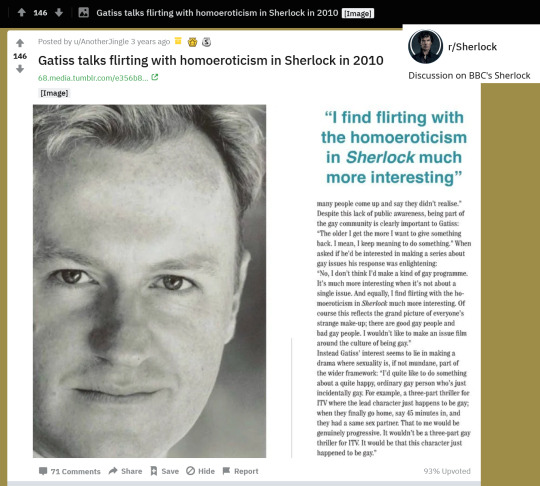
Here’s a transcript of this screenshot:
"...many people come up and say they didn't realise." Despite this lack of public awareness, being part of the gay community is clearly important to Gatiss: "The older I get the more I want to give something back. I mean, I keep meaning to do something." When asked if he'd be interested in making a series about gay issues his response was enlightening:
"No, I don't think I'd make a kind of gay programme. It's much more interesting when it's not about a single issue. And equally, I find flirting with the homoeroticism in Sherlock much more interesting. Of course this reflects the grand picture of everyone's strange make-up; there are good gay people and bad gay people. I wouldn't like to make an issue film around the culture of being gay."
Instead Gatiss' interest seems to lie in making a drama where sexuality is, if not mundane, part of the wider framework: "I'd quite like to do something about a quite happy, ordinary gay person who's just incidentally gay. For example, a three-part thriller for ITV where the lead character just happens to be gay; when they finally go home, say 45 minutes in, and they had a same sex partner. That to me would be genuinely progressive. It wouldn't be a three-part gay thriller for ITV. It would be that this character just happened to be gay."
--End article quote.
And instead, who is canonically gay in the series? Well, Irene Adler. The innkeepers at the Cross Keys. And perhaps most notably, the *villains*, because that's a helpful trope: Moriarty and Eurus are, in S4, both implied to be at least bisexual.
Any character should be able to be any sexuality, this is true. But can we have some main characters, the good guys, give some good representation? Can't we start making that the standard, rather than the villains and the background characters? Because so far, that is the exception and not the rule.
Writers need to be aware of the damage they are perpetuating. We are not quite in a world yet where any character should be able to be any sexuality but isn't, yet we have no problem with saying the villain is LGBT+ or looks different/functions differently than much of the viewing audience.
"Male friendship is important and valid, not everything has to be gay"--this is a popular point with casual heterosexual viewers (and, to my chagrin, some of my LGBT+ friends) who don't fully grasp what "queerbaiting" is, often even when it's pointed out to them.
The lens of heterosexuality is real. My first time through watching BBC Sherlock, I didn't see the Johnlock at all. I had to look for it and read about it. When I saw it, the lens was lifted for me, and it changed my life and the way I view things forever (and for the best).
But back to my point about how little Mofftiss seem to understand their own story/most ardent fans, and then on to my other theory: in S4 it must be that they dropped their “psychopaths emulating empathy” act and indulged in their own "insane wish fulfillment" by doing away with all of the meaning, continuity, and sense. Right?
So, here’s the alternate theory. One which is not, please remember, in their defense.
Remember that S4 is what Mofftiss are *happy* to have us believe is what they'd do with these characters, given the chance to do whatever they wanted. I repeat, in Moffat’s own words: “Insane wish fulfillment.”
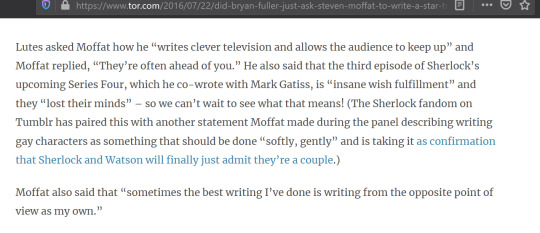
Okay I get it, this pasta has been over-salted.
Without further delay: MY COPYRIGHT RESEARCH THEORY THAT EVEN I DON'T PUT MUCH STOCK IN AND WHICH DOESN’T MAKE UP FOR THEIR CRUELTY EVEN IF TRUE
Part of me also raises an eyebrow at S4 as perhaps an example of the effect of the Conan Doyle estate on any modern production in the US. While it’s true that all of Sherlock is part of public domain in the UK and has been for quite a long time, Gatiss and Moffat still talk about it being partially under copyright. Specifically, the last 10 stories. I’m supposing that this means that because Sherlock airs internationally, or due to whatever contract the BBC has with the Doyle estate, they are still limited by the copyright as to what they can “publish”.
The Doyle estate is known for being a pain in the ass when it comes to abiding by copyright law as everyone else knows and practices it. They’ve tried to argue, for example (in 2013 and, much more recently, with the advent of Enola Holmes), that because Holmes and Watson were not fully developed as their final selves until the conclusion of all 10 stories still under copyright, then perhaps the characters themselves should still be protected, basically, in full.
It’s true that certain elements of the remaining stories are still under copyright here in the US (Watson had more than one wife--uh huh, we have that to look forward to, Johnlockers; the Garridebs moment is still under copyright--yeah, I’m getting to that too; and Sherlock didn’t care much for dogs til later so that’s not allowed either, fuck off Redbeard), but the estate’s problem in 2013 seemed to be based around a fear that *gasp* some day--if not right now!--anyone could write a Sherlock Holmes story in any way they pleased, changing the characters however they wished to and giving those characters “multiple personalities.”
See the following excerpt from the Estate’s case:
“...at any given point in their fictional lives, the two men's characters depend on the Ten Stories. It is impossible to split the characters into public domain versions and complete versions.”
(Click for full transcript.)
Obviously, by this point, that’s been done in multiple iterations. So I dunno. Their argument was *more* than muddy to begin with--they just grasp at straws to stay in control, it seems.
But okay. Backing up: wasn’t there sort-of a Garridebs moment in S4?!?? you cry. Yep. But imagine this: the Conan Doyle estate taking Mofftiss to court to argue that they depicted the Garridebs moment--a moment still under copyright--in The Final Problem.
Did they, though? Did they really?
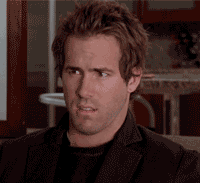
The fandom cried out about the ridiculousness--the utter disappointment--of that moment when it was shown. It was not what we would have expected/wanted. We didn’t see John injured, Sherlock reacting with tender outrage to the good doctor’s attacker.
Instead we saw some ludicrous BS that was as bad as the clown with the sword-gun-umbrella. More of that.

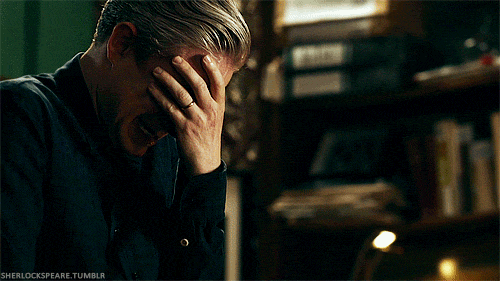
I think Martin probably found that it was easy to produce real tears when he thought about how fucking terrible the S4 scripts were.
Ahem. Yet, this all seems very Mofftiss-flavored in terms of humor.
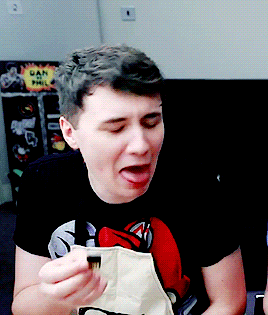
I can all-too-easily imagine them saying, “HA. We’re going to show some of these supposedly copyrighted things--and if they take us to court, they’ll be laughed out of the room.�� Could that explain some of the overall S4 fuckery?
Sherlock wasn’t supposed to like dogs til later stories, as previously mentioned-- is that why Redbeard pulled a “Cinderella’s carriage” and transformed into a pumpkin (Victor Trevor)? Hmm. Sigh.
It...doesn’t actually appear that the estate has any qualms about taking laughable stuff to court, I mean...*shrug.* They have the money to do it, and money is the name of the game, because you’ve got to pay for rights (cha-ching sounds).

Yep, it does seem that the estate is open to the copyrighted materials being made reality, but who knows for what price or with what caveats. The BBC isn’t, so far as I’ve ever heard, known for throwing money around. Early Doctor Who would be so much less entertaining if they’d had any sort of budget. (And in fact, more of the older episodes would exist, but apparently the BBC--in part to cut costs--reused some of their tapes.)
My bottom-line bitter is this: Mofftiss do like to amuse themselves. To please themselves and no one else, as they’ve shown time and again. Sure, they could do whatever they wanted with S4...and they did...but they were also cruel about it, and that’s what I’ll never forgive them--OR the BBC--for.
A lot of fans gave up after series 4. I was very nearly one of them. I was angry, like just about every other Johnlocker and/or TJLCer, but I was really truly heartbroken. I couldn’t look at fanfiction. My days were full of bitterness and I keenly felt the lack of the fandom outlet that had become so essential to my mental well-being. I didn't know how to overcome the disparity between TJLC and what the show actually was. I didn't know how to separate the things I loved so much from the shitty writers and the way the BBC handled things with their whole response letter (that atrocious, childish blanket response they sent to everyone who complained about S4, not just the Johnlockers/TJLCers. Related to your complaint or not, if you filed one post-S4, this was the response you got). I still boycott BBC shows/merchandise, just by the way.
I tried to link to the blanket response letter but the link didn’t want to work (it’s an old reddit post; I had difficulty finding a copy of the letter elsewhere though at one point it wasn’t so hard...Google is weird these days y’all...tell me it’s not just me) so here’s a screenshot:
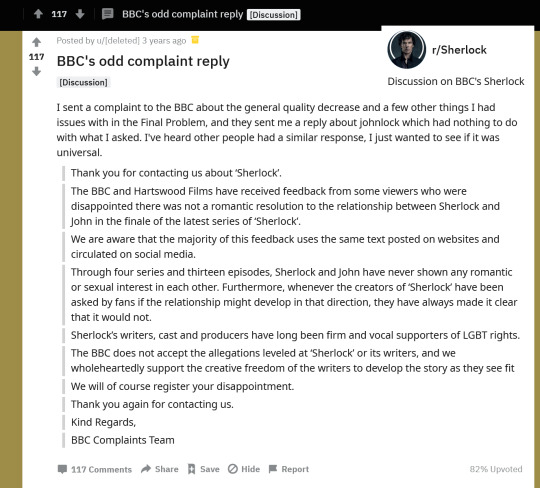
Transcript:
“Thank you for contacting us about “Sherlock”.
The BBC and Hartswood Films have received feedback from some viewers who were disappointed there was not a romantic resolution to the relationship between Sherlcok and John in the finale of the latest season of “Sherlock”.
We are aware that the majority of this feedback uses the same text posted on websites and circulated on social media.
Through four series and thirteen episodes, Sherlock and John have never shown any romantic or sexual interest in each other. Furthermore, whenever the creators of “Sherlock” have been asked by fans if the relationship might develop in that direction, they have always made it clear that it would not.
Sherlock’s writers, cast and producers have long been firm and vocal supporters of LGBT rights.
The BBC does not accept the allegations leveled at “Sherlock” or its writers, and we wholeheartedly support the creative freedom of the writers to develop the story as they see fit.
We will of course register your disappointment.
Thank you for contacting us.
Kind Regards,
BBC Complaints Team
So how about that? *Did* they “register our disappointment”? We can actually check that. The BBC’s website has a monthly summary of complaints received. So what did they receive in January 2017, the month S4 aired?

Huh, what do you know. Sounds like that blanket response was exactly the “fuck you” it came across as.
But the show--the FANDOM--had filled a need in my life, and so I had to own that and make it mine, or just...let something in me die: something that felt like an actual vital organ. I had to decide that these characters mean something to me beyond what anyone else tells me they should. I had to accept my own perceptions as truth, as I do with everything else in my life. I had to overcome the idea of canon as law (BBC Sherlock isn't canon anyway; ACD is canon. BBC Sherlock is, in the end, badly written fanfiction--or--worse?--decent pre-slash fanfiction distorted by consistent lies and the hazing of the LGBT audience, topped with the dumpster fire of S4′s incoherent nonsense).
I had to take the good and throw away the bad, just like anyone else who chose to stay. The good bits of the show...dialogue, yes. Plot points, yes. These awful writers did write some good stuff sometimes.
They just broke all the unspoken rules of what not to do to your audience. And then did and said everything they could not to apologize, and to justify their own failings. Which, in the years since I began shipping queer ships beyond any others, I have unfortunately experienced more than once.
So, my vulnerability has been yeeted into the vacuum of broke-my-trustdom: no one can tell me what things should mean to me. I will decide.
I decide that all of the FUCKING AMAZING writing in the Sherlock fandom is a staple in my life that makes it worth living. And that that's okay. And takes precedence over anything the writers or anyone else associated with the show could ever say or do.
Johnlock can not be taken away. It doesn't belong to them. It never did, even if they brought us to it. It belongs to us. To the group of amazingly creative, brainy, empathetic, resourceful, vibrant, resilient people who make up this fandom.
So thank YOU, all of YOU, for giving me Sherlock, Johnlock, and TJLC.
I am SO SAD for those who never found a way to make peace with this fandom again. Let me just say that I understand that inability entirely.
I am fortunate that I found the ability in myself to cling to the joy (something it has taken my whole life to be able to do). I hope others will who haven’t yet but wish they could.
Let Mofftiss and whoever sides with them stay angry and bitter and vicious, always looking over their shoulders for anyone who dares to whisper about subtext.
I’m proud to be part of what they’re whispering so angrily about.
Thanks for sticking it out if you made it this far. I know this was very self-indulgent and rambly.
Articles of interest:
A Study in Queerbaiting (Or How Sherlock Got it All Wrong) by Marty Greyson
“We never played it like that.” - Martin on Johnlock
Henry Cavill on the Enola Holmes lawsuit
More on that--and by the way Sherlock isn’t allowed to like dogs
The way Sherlock creators told fans Sherlock & John aren’t gay is so rude
Especially for those new to the fandom who may not know the distinction between TJLC and Johnlockers and want to know more about TJLC's evolution/what it is/meta through the years
Moffat's view on asexuality, offensive to me in particular *as* an asexual person (same article where he claims he isn't misogynistic): "If he was asexual, there would be no tension in that, no fun in that – it's someone who abstains who's interesting."
Yet he says Sherlock isn't gay or straight and that he's trying to keep his brain pure which is a "very Victorian attitude"
(Nice historical research there, Moff--actually the Victorians were sex-positive).
Sherlock fans were robbed of the gay ending they deserved
Benedict Cumberbatch has lashed out at his Sherlock co-star Martin Freeman over his negative attitude towards fans
BBC complaints January 2017
Martin Freeman: 'Sherlock is gayest story ever'
From 2016: UNPOPULAR OPINION: "Sherlock" Isn't Sexist or Queerbaiting; It's Actually Trying to Stage a Revolution
Queer-baiting on the BBC's Sherlock: Addressing the Invalidation of Queer Identities through Online Fan Fiction Communities by Cassidy Sheehan
#bbc sherlock#bbc sherlock salt#sherlock s4#sherlock holmes#acd#john watson#sherlock copyright#mofftiss#queerbaiting#johnlock#tjlc#johnlock fanfiction#fandom#writing#fandom life#sherlock fandom#tjlc fandom#johnlock fandom#sorry for the salt sometimes you just need somewhere to put it all#the bbc
37 notes
·
View notes
Text
okay, so this is why show creators need to plan out the ENTIRE plot BEFORE they start filming the show — that way they can use effective parallels,, and have an ending that makes sense and isn’t just “yo guys, hot take but what if we did this thing spontaneously” as they go along with the story.
because obviously that never ends well. you know how many shows i’ve watched that have a bad ending because the writers didn’t plan out the entire story before writing the actual scripts? too many to count. for a contrasting example, think of harry potter or the good place. those series’ plots were clearly planned out before the show started airing. the creators knew what they were going to do. they started from the end, and had all the big plot points planned out, and THEN they created the minor points of the story. and you can tell that they did this, because that’s what good writing looks like. it’s easy to recognise, they had a plan from the beginning and they saw it through.
now for a contrasting example, think of sherlock and more relevantly, supernatural — which is what this post is about lmao. those shows were written as “this is the concept, and we’ll just reference said concept as we go along”. this is, pretty clearly imo, bad writing.
they didn’t know what they wanted to do. unlike the other two series, the writers of spn and bbc sherlock didnt know when they were going to end the show, or how they were going to end the show. these caused them to create random plot points which weren’t planned out properly because they weren’t written in a way that would progress the show and lead them to the end. in the case of sherlock, mofftiss could’ve followed along with ACD’s (the author of the original books) version of the story which made a bit of sense. to be fair, ACD didn’t care about his sherlock holmes series but at least he was somewhat consistent with his characters’ backstories :|
mofftiss created this idea that there was a big secret about sherlock’s trauma from the very beginning. however, we finally got to the point of learning the truth behind this big childhood trauma of sherlock’s, and in turn we expected the canonisation of johnlock, but when season 4 came around we got things that made no sense when considering the rest of the story.
now i’m not gonna lie, i haven’t watched supernatural yet, but i’ve got a pretty solid idea of how it works and what happened in the end. the fans were given a show about supernatural creatures, that’s pretty clear. however, this show had no timeline; no predetermined plot points and no predetermined end. this led to the show lasting for 15 seasons,,, 15 long years of waiting for a finale and the canonisation of a queerbaited ship. because there was no planning for the show, characters came and went, drama took place, but nothing was effectively leading towards the end. so now the writers decided to end the show. but how? alright, let’s give the fans what they’ve been asking for over the course of these 15 years. so they spontaneously write in a love confession. the keyword here is ‘spontaneous’. now what? homophobic writers have left themselves with a gay main character. okay, let’s kill him off. but he’s a big character, so let’s make it a big deal — let’s send him to superhell. NOW now what? we’ve killed off one of our main characters, so we can end the show. but how do we complete the stories of the other two (2) main characters? ehhh idk, let’s just give the one tetanus so that he dies, and the other can have a generic picket fence trophy wife happy ending. oh and the first dude can have his car in heaven, ✨ cuz he liked the car ✨, and also we don’t know how else to transition into the montage of the second dude’s happy life.
so what do the loyal fans of 15 years get out of this?
the writers are so homophobic that they’d rather send a car to heaven than a gay angel
the show ended the same way it would’ve ended if s1e1 didn’t take place
the most random ending i’ve ever heard of in my entire life,,, wtf tetanus?? WHERE DID TETANUS COME FROM?? that’s so random i hate it here 😻
their comfort characters are all dead and only 1 of them got a happy ending, and it wasn’t even satisfying because he wasn’t with his brother and/or his friend
for some, this show was one of the only things that gave them comfort and happiness. the real world loves to kick people in the ass, and now the fictional world doesn’t even have a happy ending.
this show has quite possibly turned into a trigger for a lot of people. a trigger that will now be discussed until the end of time as one of the worst endings in existence.
so in conclusion:
plan out the main plots of your story before you start writing it,
and plan out how these plots will lead to an ending that will be thoughtful and satisfying.
it doesn’t have to be happy if you don’t want it to be, but it has to be satisfying. that’s good writing.
#supernatural spoilers#supernatural#deancas#destiel#bbc sherlock#sherlock#johnlock#superwholock#doctor who#sorry for tagging doctor who but i feel like i can’t leave it out of superwholock lmao 😽#superwholock was a contest and doctor who won#sherlock series 4#supernatural ending#idk what else to tag so i think i’ll just stop now JAJJFJS 🤡🤡 clown shit istg xx#oh wait i left out harry potter and the good place#harry potter#the good place#i’d just like to point out that i don’t support JK Rowling in any way#emma watson and daniel radcliffe wrote harry potter#but damn is that series good
21 notes
·
View notes
Text
You know what, Sherlock was not an asshole and he always cared but at the same time he was victim to a LOT of shitty writing series 1 and 2 that did legitimately turn him into an asshole. Like we really can't blame the straights for noticing the extreme difference in his kindness levels series 1&2 and series 3. Instead of excusing his bad behavior in earlier seasons like we did we should have been calling out Mofftiss for it. Sherlock Holmes fucking induced a panic attack in his only friend for experimental reasons in TBH and he never apologizes for it! Granada Holmes would never! He was genuinely unpleasant most of the time in Season 1 & 2 and we were like uwu he's socially awkward and we latched onto the few times he showed emotion and we used them to excuse all the other times he treated John and the other people in his life like shit. We shouldn't have done that. That was bad writing and we ignored it. Then when Sherlock started to act actually like a kind person in Series 3 we said how casuals who were confused just "didn't understand his character" but really if someone who had no background in Sherlock Holmes sat down and watched Series 1 and 2 and came fo the conclusion Sherlock was an asshole it would be a perfectly reasonable assumption. It was bad writing
#this post is too long it ain't gonna get notes#bbc sherlock#sherlock bbc#sherlock holmes#acd holmes#johnlock#I really regret how much we let mofftiss get away with#I thought we were consuming media critically#but I've never consumed media less critically in my life
30 notes
·
View notes
Text
My one and only contribution to TJLC et cetra
It’s been three years. “If anybody out there still cares...”
Sherlock’s camel colored dressing gown exists only in his mind-palace.
We see it only in TSOT (when he’s telling “funny anecdotes” at the reception), TAB (the notorious gay victorian fever dream), and Season 4 (except for The Hug). Based on its use in TSOT and TAB, we can conclude that a majority of S4 also takes place in Sherlock’s Mind Palace.
Note: This does preserve The Hug because he was wearing his blue dressing gown, his favorite. But that may have been the only real thing to happen in S4. We know from ASiB that his red dressing gown is his second best.
Therefore, the only way I would accept a S5, would be for Mofftiss to confirm EMP Theory. There is a small chance that we have been stuck on The Tarmac since 2015. The last time we saw him in TAB, Sherlock was dying. How and when did he recover?
@loudest-subtext-in-tv @afishlearningpoetry @inevitably-johnlocked @the-7-percent-solution @loveinthemindpalace @devoursjohnlock
#sherlock bbc#sherlock#tjlc#emp theory#emp#tinfoil hat#tin hat#sherlock s4#sherlock s5#sherlock meta#johnlock
184 notes
·
View notes
Text
sherlock s2 ep 3 livewatch

it’s time for the sherlock s2 finale! i’ve been keeping lockie alive for as long as possible, but I can’t stall any longer. let’s fall into the reichenbach!
here it is:

the last masterpiece ep! :D
it begins with rain! *beatles ‘rain’ plays*
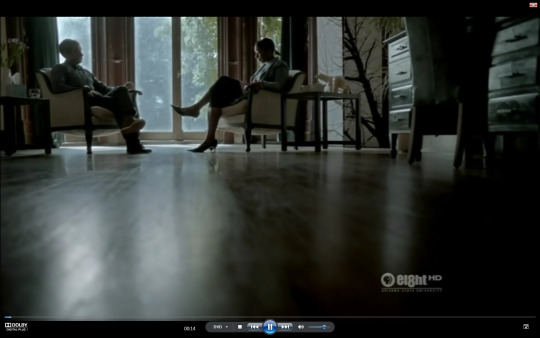
john’s back with the therapist from study in pink! :o
does this take place after the fall and the rest of the ep is a flashback?
it’s been 18 months!
john called tv ‘telly’:)
OMG HE’S CHOKING UP NO POOR BBY :’(
he called sherlock ‘my best friend’ IN THE SADDEST VOICE IN THE WORLD :’(
john: “sherlock holmes... is dead.” or is he? ;)
BAM INTRO!
guy: “falls of the reichenbach...” you dodged a credit roll with that one! ;)
sherlock: “diamond cufflinks. all my cufflinks have buttons.” john: “he means ‘thank you’. ...just say it.” awww what a parent :)
sherlock isn’t one for thanks and publicity!
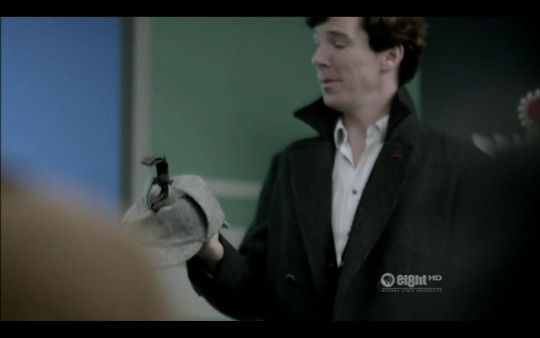
the iconic hat! :D
EVERYONE WANTS HIM TO PUT THE HAT ON
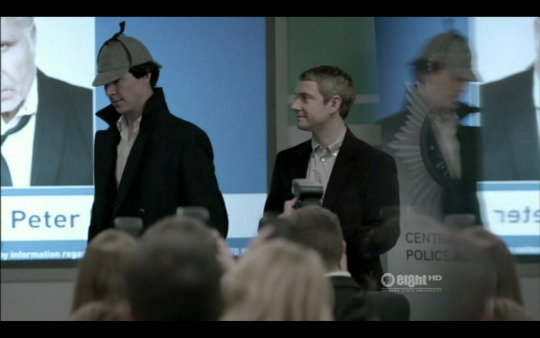
he reluctantly put the hat on:)
the transitions from a scene to a newspaper is so cool! :D
john’s tabloid nickname is BACHELOR OMGGGGGG
john: “what do they mean by that?” oh you know what that means buddy ;)
CONFIRMED BACHELOR OMGGG VICTORIAN GAYYYYY!!!!!!!!!! (or in his case bi)
john: “we need to be more careful-“ johnlockers: “NO!!!!!”
sherlock is criticizing the hat lol :D
john called it the ‘sherlock holmes hat’ eyyyyy!!!!! ;D
john’s voice has a hint of deep love it ;)
there’s so many people touring at the castle! :o
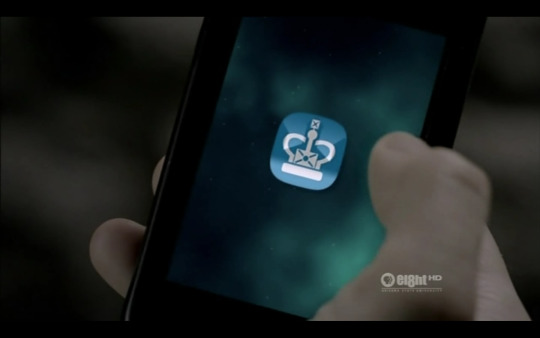
this sneaky guy has this on his phone and i’m guessing that’s what all apps in the uk look like lol
OMG HE HACKED INTO THE SYSTEM
is it moiarty?
lestrade said ‘bloody ‘ell!’ and it was so british of him :D
he’s dancing to the background music YEP IT’S MOI ALRIGHT

YEET
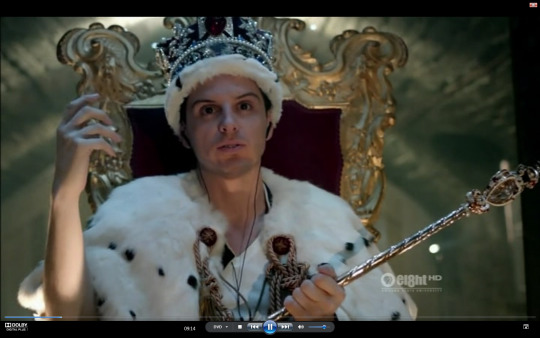
OMG MOIARTY YOU DRAMA QUEEN
also is this an abominable bride reference? :o
john’s text notif sound sounds apple WHY
he has a windows laptop and an apple phone how chaotic

the smiley face!!!! :o
ooh cool american song playing in the background! :o
john: “ready?” sherlock: “yes” *PRESS CHATTER* how would anyone be ready for that?
sherlock wants to be himself but john’s like ‘no smartass’ LET HIM BE A SMARTHOLE JOHN

it’s the bbc! :D
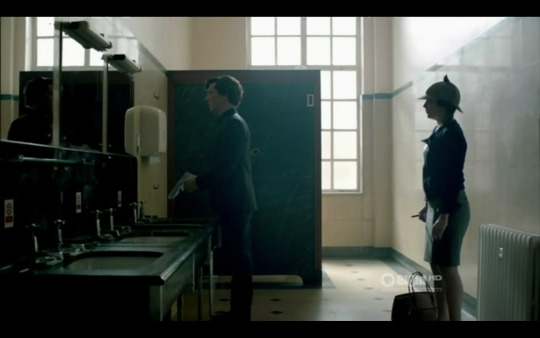
OMFG A FAN FOLLOWED SHERLOCK INTO THE RESTROOM WTF
i bet johnlockers have actually done this because they were craaazyyyy back then...
THE FAN WANTS HIM TO SIGN HIS SHIRT WTFFFFF
sherlock knows she’s not a fan lol :D
wait is someone peeing in the background wtf
fan: “you and john watson, platonic, have you there as well!” mofftiss totally based this girl off of real johnlockers!!!!
can they please leave the bathroom I SWEAR SOMEONE IS PEEING BACK THERE IT’S SO AWKWARD
sherlock: “you... repel... me.” YAS!!! :D
HOLD UP what if this is mofftiss’ way of saying they don’t like johnlockers :o
now lockie’s in court bor-ing!
moiarty is a spider great metaphor sherlock! :D
judge: “how long-“ sherlock “not a good question.” lol :D
sherlock and moiarty knew each other for 5 minutes lol
who ate the wafer
SHUT UP WIG MAN LET SHERLOCK SHOW OFF
aaand he kicked them out
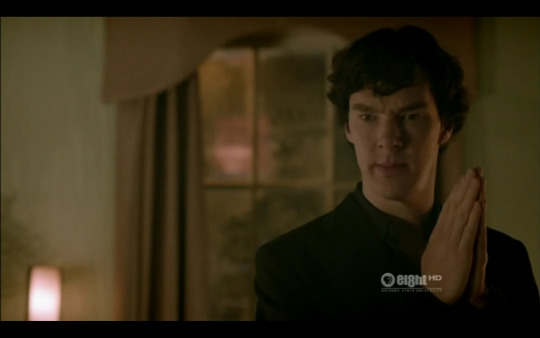
john: “you’re doing The Look again.” omg so married ♥
he finds The Face annoying lol MARRIEEEED

epic wallpaper! :D
OMG MOIARTY WAS CHEWING GUM DURING THE CRIME AND THE COURT THING DORK
and he looked at john... ;)
moiarty’s out and sherlock beeps john away,,,
he be making tea WITH HIS VIOLIN PLAYING YYYAAAASSSS!!!!!!!!!
omg there’s a shadow...
AN A CREAK
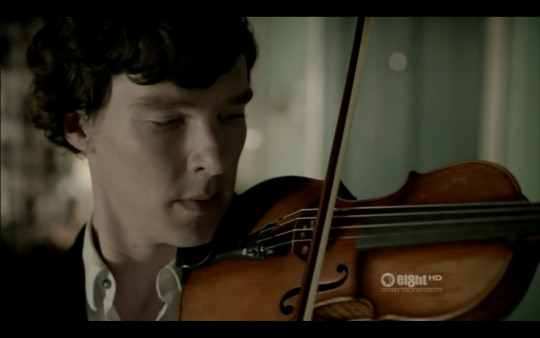
I KNEW IT WAS MOIARTY!!!!!!
sherlock lets him sit down wowza kind to a criminal! :o
moiarty: “every fairytale needs a good old-fashioned villain ;)” omg HE KNOWS HE’S A STORY CHARACTER AHHHH :o
moiarty to sherlock: “you need me.” no he needs john THANK YOU VERY MUCH
moiarty thinks sherlock’s boring SHUT UP FUNNY MEAN MAN >:(
moiarty: “that’s the problem... the final problem.” eyyyy roll s4 credits! :D
moiarty: “i didn’t tell you... but did you listeeeennnn?” lol sing-songy moiarty is funny :D
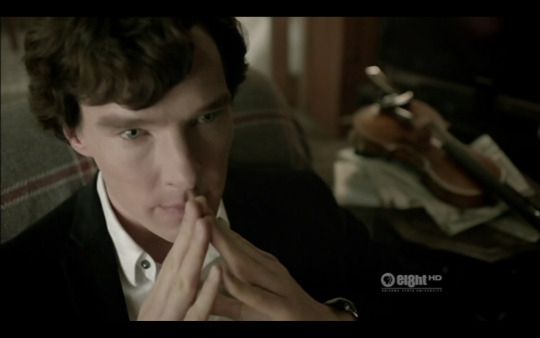
he’s doing the hand thing ♥
moiarty: “i own secrecy” who do you think you are bish brother
MOIARTY CALLED SHERLOCK ‘HONEY’ :o
WHY IS MOIARTY SAYING ‘DADDY’
THE FALL HE SAID THE FALLLLLLLL
sherlock: “i never liked riddles.” *maddie hatter rages in the distance*
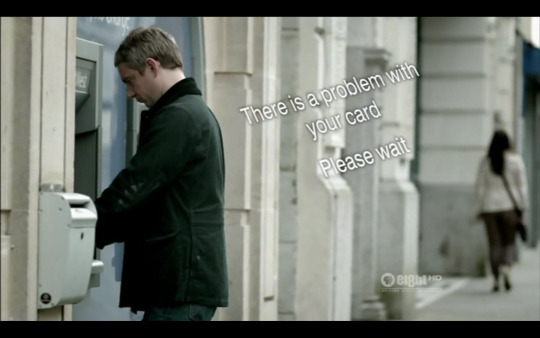
he’s having a row with the machine again ;)
also that’s literally my dad with his card lol :D

ooh antiques roadshow! :D
john’s meeting mycroft why
OMG HE WAS TAKEN HOSTAGE
it’s just mycroft’s way of saying hello?
what happened in 1972
mycroft’s giving john an unrelated case... s1 finale flashback!
john’s loooong groan lol :D
sherlock is moiarty’s ‘only rival’... >:)
awww john fed some crumbs to birds :)
another unrelated case and lestrade is at the flat! :o
lestrade called lockie ‘a celebrity’ awww :)
SHERLOCK DON’T YELL AT THE CRYING LADY :(
oh he wanted her to ‘speak quickly’ ok
not ok but thaaat’s lockie!

it be moi...
sherlock SNIFF
sherlock: “brilliant, anderson?” anderson: “really?” sherlock: “brilliant impression of an idiot.” OHHHHH!!!!!!! :D
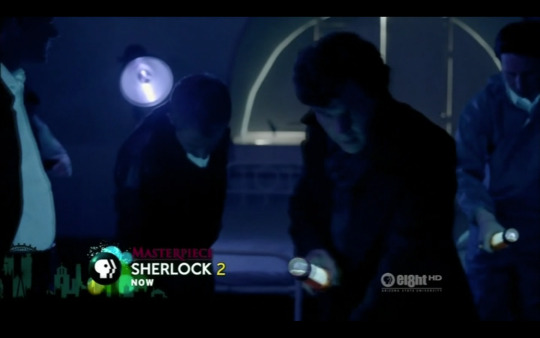
sherlock 2 NOW
john: “don’t do the smiling thing. kidnapped children..?” oh he always does the smiling thing! ;)
molly was going on a lunch date but sherlock said she’ll go with him and her little ‘what?’ is so cute! :D

sherlock’s like ‘look at all the fricks i give’ :D
aaand he left her!
sherlock: “the chemical footprints will lead us to moiarty!” all roads lead to rome, and all the footprints there lead to moiarty ;)
SHERLOCK CALLED MOLLY ‘JOHN’ OMG :D

b r i c k d u s t
molly: “you’re like my dad. he’s dead- no, sorry-” lol :D
oh no molly’s telling a sad dad story :(
i can kind of see why people ship sherlock and molly they’re nice together :)
BUT JOHNLOCK IS BEST SHIP
although molly’s super awkward she’s so cute! :D
SHERLOCK GOT THE FAIRYTALE REFERENCE AFTER I DID YAS!!!!! :D
lestrade: “brick dust!” b r i c k d u s t

he’s the google in 360 website! :D
they burst through the kidnapper’s door and it was like ‘someBODY once told me’! :D
omg mercury chocolate wrappers! :o
sherlock: “the more they ate, the faster they died... neat!” ...neat? :o
they found the kidnapped kids! :D
lestrade doesn’t want lockie to be himself awww :(
THE KIDNAPPED GIRL SCREAMED AT SHERLOCK NO :(
lestrade to sherlock: “i feel like screaming when you walk in!” ooh noice ;)
the jerk lady said sherlock was ‘unbelievable’ coolio she’s a bit nice! :D
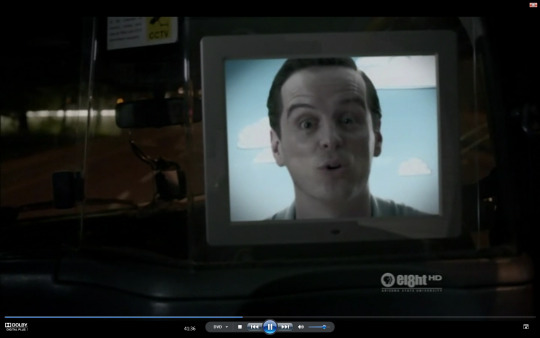
MOIARTY HACKED THE TAXI TV OMG :o
also there are tvs in taxis OMG :o
lestrade called sherlock and john ‘csi baker street’ lol :D
moiarty’s connecting sherlock to sir bostalot hmm... ;)

hmmm....
sherlock: “what was that on the tv?” cabbie: “no charge...” *drives away* OHHHH
OMG SHERLOCK ALMOST GOT HIT BY A DAR
OMFG WAS HE ALMOST SHOT WTF WAS THAT
john to the rescue!!! :D
the guy was shot not lockie coolio
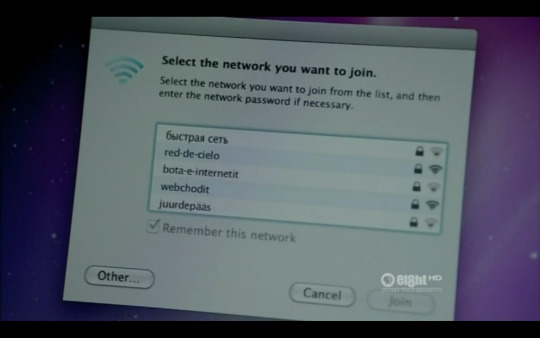
sherlock uses a mac WHYYY :(
sherlock: “dust is eloquent” mrs. hudson in a whisper: “what’s he on about???” lol :D

lockie vlogs! :D
sherlock: “this is a game, lestrade, one i’m not willing to play.” so the game is not on, then?
john: “i know you for real.” sherlock: “100%” awww :)
john: “no one could fake being suck an annoying dick all the time.” OHHHH!!!!! :D
guy: “yer a bloody idiot, lestrade!” and yer a bloody brit aren’t ya?
mrs. hudson said ‘ooh hoo’ just like oaken! :D
OMG fairytale!!!!
lestrade and the lady knocked on the door and mrs. hudson’s like ‘don’t barge in like that!’ :D
OMG THEY’RE ARRESTING LOCKIE
WHY IS THE LADY THINKING LOCKIE DID IT HE DIDN’T!!!!!
awww sherlock and john were arrested together so romantic just girly things ♥
OMG GUN SHOT????
they’re running omg!!!!!
sherlock: “take my hand!” FRICK YES
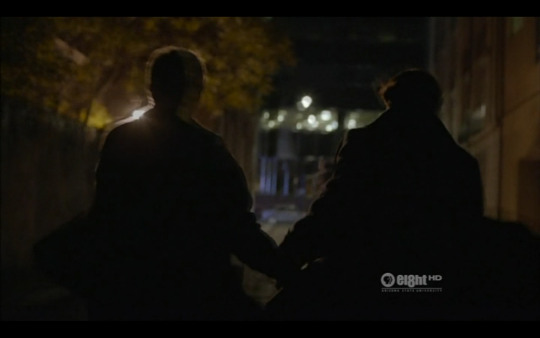
john: “people will definitely talk!” FRICK YAAAAS!!!!!!!
just two bfs running around in handcuffs ♥
they need to coordinate while getting up the stairs... easy enough for them! ;)
THEY JUMPED IN FRONT OF A VAN JUST CRIMEY THINGS ♥
i thought the van thing was part of the drunk ep in s3 but it’s cool that-
GUN SHOTS????
they let go! :o
OMG IT’S THE CREEPY FAN!!!!
moiarty: “they didn’t have any ground coffee so i just got-” *SUSPENSE CHORD* out of context that’s hilarious :D
moiarty’s richard!!! :o
wait he’s a hired actor the frick???
THE FRICK ARE THEY ACTING??????
just because it’s in print doesn’t mean it’s real...
ok technically moiarty’s an actor BUT THAT BE KNOCKING DOWN THE 4TH WALL
an actor playing a person playing an actor... wild actorception! :o
moiarty: “i’m the storyteller! it’s on dvd...” but is it on blu-ray? ;)
sherlock: “stop it STOP IT NOW!!!!” yoda seagulls...
fan: “i can read you and you... repel... me...” DON’T USE HIS LINE BOI
sherlock: “there’s only one way to complete his game...” is it on? ;)
OMG he’s admitting his feelings to molly AND HE NEEDS HER awwww!!!! :D
the sherlolly fans loved that i bet! :D
john to mycroft: “you and him go out for coffee? you and jim?” sarah z be like ‘YAS!’ :D
OMG WAIT DID MYCROFT WORK WITH MOIARTY????
mycroft tells john to tell moiarty ‘i’m sorry’ and john just gives this ‘please’ wheeze lol :D
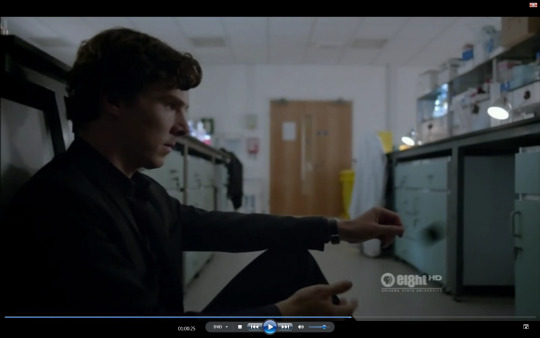
julie albright bouncing her basketball against her bedroom wall in ‘meet julie’ (colorized)

oh CRAP
lockie’s fidgeting with the ball awwww :)
OMG MRS. HUDSON WAS SHOT THE FRICK????????
john: “she’s DYING.... you MACHINE!!!!!!” YEAH LOCKIE YOU BISH
john: “friends protect people!” true that!
THE FRICK WHY IS BEE GEEZ PLAYING

this is the music video lol :D
omg are moiarty and lockie gonna have a dance battle like in despicable me 3 lol :D
moiarty: “our final problem... stayin’ aliiiive!!!!!” HE SO PLANNED THAT
there’s about 28 minutes left will the battle take that long?
oh he turned the song off :/
aw man moiarty has to play with the ordinary people :/
MOIARTY SAID ‘atta boyyyy’ TO SHERLOCK WHYYYYYY
ooh sherlock’s doing binary code with his fingers! :D
moiarty: “first one to sherlock is a sissy” oh SHUT UP
moiarty: “there is no key DOOFUS!!!!” WOAH MAN CALM THE FRICK DOWN

“look at ALLLLL THE FRICKS I GIVE SHERLOCK!!!!”
moiarty: “nice you chose a tall building! great way to do it!” sherlock: “do- do- do what?” oh you know what lockie :(
moiarty: “i read it in the paper so it must be true!” no!!!!
john’s here for mrs. hudson!!!! :D
she seems fine tho?
moiarty: “for me? pleeeeeaaaseee?????” OMG THAT ‘PLEASE’ WAS SO HIGH LOLOLOL!!!!!!!
toss him sherlock TOSS HIM!!!!!
moiarty’s little ‘woah woah woah!’ tho :D
aww sherlock has only 3 friends :(
moiarty about sherlock kermiting: “you gotta admit that’s sexier” WUT

NOOOOOOOOO
sherlock’s breath is so shaky :(
he said ‘privacy’ like ‘pri-va-cee’ why
he’s gonna call john!!!!!
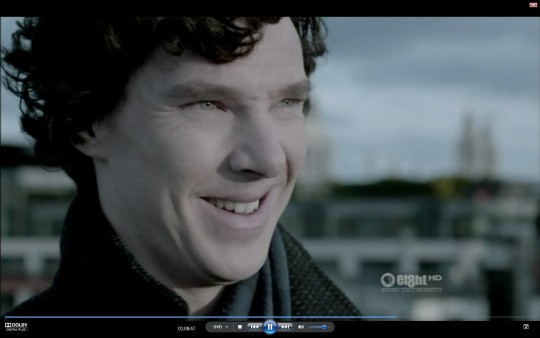
awww smile!!!! :D
he knows that this is fake right?
moiarty’s like ‘WHAT?? WHAT DID I MISS????” BOI CALM DOWWwwwwnnnn
sherlock to moiarty: “i am you. prepared to do anything.” save that line for john plz
sherlock is ‘on the side of the angels’ awww :)
moiarty said sherlock’s not ordinary RIGHT HE’S A SPECIAL SUNSHINE ANGEL
moiarty: “you’re meee!!!!!” NOT WHAT I MEANT
they’re holding hands and standing close NOOOOO
HOLY FRICK SHERLOCK JUS SHOT MOIARTY IN THE MOUTH THE FRICK THE FRACK???????
he’s not really dead right or is that just a theory
sherlock’s like ‘oh god what have i done’ SAME WHAT DID YOU DO
it sounds like the thx theme!

oh no
i know it’s not a legitimate kermiting sewerside but DON’T FREAKING DO IT
HE’S CALLING JOHN OH FRICK
HE WANTS JOHN TO SEE HIM FALL THE FRICKKKKK
sherlock: “look up, i’m on the rooftop.” ♫ up on the rooftop, click click click, HERE COMES SAD OL’ KERMIT CLAUS ♫
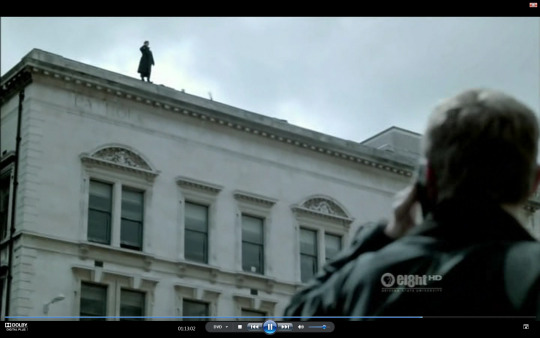
CRAP
sherlock: “i can’t come down so we’ll have to do it like this.” it was only a kiss :(
an apology????
‘IT’S ALL TRUE’ THE FRICK????
is this just for moiarty’s game?
sherlock sounds like he’s gonna cry NOOOOO :(((((
john: “shut up, shut up, shut up.” SAME WTF ARE YOU SAYING LOCKIE???
sherlock: “no one could be that clever. you could.” OMGGGGG
FIRST WINSTON & JULIA AND NOW SHERLOCK & JOHN WHYYYYY
sherlock sniffled omg :’(
he researched john to impress him OH MY HEART!!!!!
it’s not a trick sherlock is legit amazing!!!!!!!!
sherlock wants john to ‘keep his eyes fixed’ NOOOOOOOO
if sherlock knows this is fake he’s doing a pretty good job at it BUT WHY JUST TO PLEASE MOIARTY OR ESCAPE THE SPOTLIGHT OR WHAT
sherlock: “goodbye john.” NO

NO
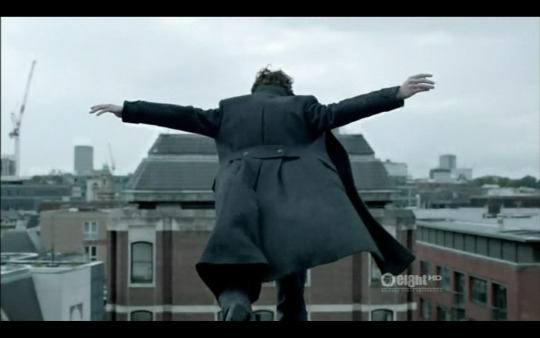
NO
OH GOD THERE WAS A CRACK
if sherlock’s alive THEM HOW WAS THERE A CRACK
WAIT JOHN JUST FELL THE FRICK IS GOING ON????
john: “i’m a doctor, he’s my friend!” yes you are AND YES YOU FREAKING ARE
it’s fake he’s not really dead OH HOW I WISH I COULD TELL YOU THAT JOHNNY :(
OMG NO :’(
THE SAD VIOLIN I CAN’T
everything is slow NOOOOO
i can’t believe mofftiss made the fans wait 2 YEARS TO FIND OUT WHAT HAPPENED NEXT i know there was ‘many happy returns’ in 2013 BUT HOW DID THE FANS SURVIVE THAT LONG WITH THAT ENDING????
it’s raining now perfect

gun????
therapist: “he didn’t say it. say it now.” john: “sorry, i can’t.” he said ‘i love you’ :(
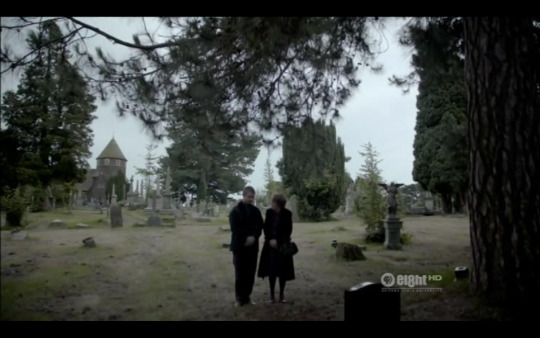
awww john and mrs. hudson! :’(
omg she’s crying no!!!! :(
john to sherlock’s grave: “you were the best man and the most human i’ve ever known.” awww :’)
john: “one more miracle for me, sherlock. don’t. be. dead.” miricale granted my friend ;)
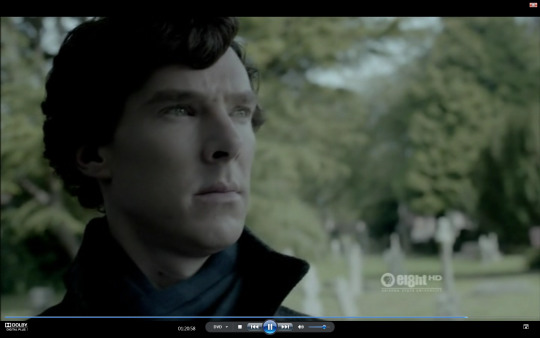
OMG WHAT HE WAS STANDING THERE THE WHOLE TIME WITH JOHN SUFFERING LIKE THAT THE FRICK?????
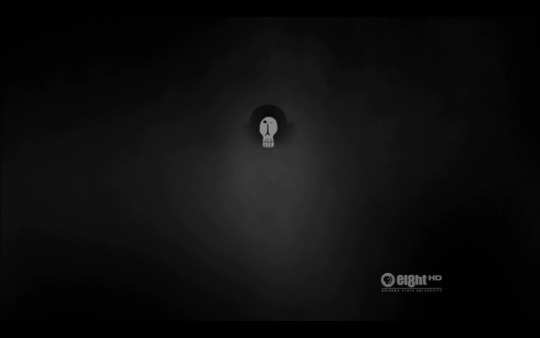
that’s the end of s2! that was a much better finale than s1 and it’s definitely the best ep of the series so far. there’s a lot of exciting turns AND WHAT EVEN IS THE ENDING??? you knocked it out of the park mofftiss! i can’t wait to see what s3 has in store besides mary, drunk times and the wedding!
and to quote the blog... ‘#sherlocklives #johnwatsonlives’ ♥
#livewatch#i know it'll be a great season finale! :D#and it's the first s2 livewatch without any technical issues ;)
4 notes
·
View notes
Text
Thank you for taking the time and typing up your reply, @alma37.
Now I get where you were coming from. You are def much more attached to Zoe than I am. You don’t need to produce any other arguments and “I like it better this way” is a perfectly acceptable answer. And while I don’t believe Agatha’s return is completely at Zoe’s expense -- given that she would have died anyway --, I understand the pain of watching a favorite character used as fodder for another one’s story.
You’ve also raised some interesting points and the exact questions I’ve been pondering myself, so I’m gonna take this opportunity to just unload my thoughts here. Please don’t take this as me trying to talk you out of your opinion or preferences bc I don’t wanna do that.
This is mostly just me trying to explain my preferences to myself.
"after Blood Vessel, as much as Dracula liked her, I could not see him and Agatha together”
oh yes, theirs is an infinitely fucked up dynamic, there is no debating that. they are enemies, so murder attempts come w/ the territory, which is not every shipper’s cup of tea and that’s understandable. However, every relationship involving Dracula is fucked up this way by default since he automatically brings his "inclinations” into it. I guess one could write him already “tamed” and w/ less issues but then it wouldn’t really be him. This is a major thing I love about this show, how they are not afraid to portray him as a full-fledged monster who just keeps coming at you w/ a razor smile -- partly bc he literally can’t help himself. He is a predator who -- to once again quote the commentary -- operates w/ a “torturous sense of fairness” that, to me, echoes the amorality you can observe in the animal kingdom: there is no reasoning with a hungry lion once it’s spotted a zebra; it’s in its nature to hunt prey in order to survive. Empathy or morals don’t factor into this basic conduct.
Dracula has this hard-wired primal drive, too. And Agatha points it out early on when she calls him a beast who doesn’t understand the rules governing its behavior but simply follows them. Of course, he has a point, as well, when he claims he’s more than that. He is. Otherwise, he would just be absolved of all the killing he does, which would feel cheap and unjust and would rob his character of all the fun complexities. Underneath the veneer of a sophisticated nobleman there is a beast, and underneath that grotesque (protective) display are human remains and loads of festering mental health issues. But the only person who bothers to look at these layers and how they inform each other is Agatha. Her equally unyielding drive for knowledge & understanding is the power that allows her to counter him, exert control over him, and tap into his deformed human core in a way nobody else has ever been able to. She does this to save others from him but also to satisfy her own dark fascination, and in the process I think she also comes to feel for him. They reach a level of intimacy that makes this outcome inevitable, imo.
This, in my eyes, makes her pretty much the only person who has any chance at having a more meaningful relationship w/ him that lasts longer than his feeding time. This is also what comes across in Dracula’s indirect advice to Zoe: if she hopes to match him, she will need to conjure Agatha from his blood. He essentially gives her the key to his own destruction (which is also his way out), then retreats and waits. This has the same self-regulating vibe as him convincing himself that his immense supernatural power has ordinary loopholes like needing an invitation to enter or the sunlight. Shame is a control tactic and self-shaming is a form of self-control, albeit a very problematic one. He puts in checks and balances which you wouldn’t do unless deep down you knew you needed to be “checked and balanced” by someone who’s willing to take on the thankless task. He cannot do it, he can’t face himself (he literally smashes mirrors and turns from every reflective surface), but Agatha is willing and able to drag him back into the light.
This is why the parallel to Petruvio & his wife works so well. The design to Dracula’s mind (and therefore the way out) is scattered across time and many myths. Agatha collects these and uses them to lead him out of the prison he’s made for himself, which has its visual parallel in the maps being hidden inside the wife’s portrait.
In other words, I cannot see Dracula with anyone else long term since he sees everyone else as a toy and/or a prey -- a means to an end. That’s how he sees Agatha at first, too, and it takes some time for him to realize that he made a mistake. This delayed realization can also be attributed to his bestial drive that has subdued the rest of him for so long, he really cannot cut through its wiring on his own; he came to exist to continue his existence, and the pointless circularity of this is the biggest trap: despite leaving loopholes, he’s still a prisoner of his own hunger & shame. Feeling for others would make it infinitely more painful but shedding empathy only provides a temporary release. Still, life lived solely for oneself is never fulfilling no matter how long it stretches forward, and the insatiable hunger Dracula feels gels nicely w/ this.
It’s Agatha who breaks the circle when she makes him confront the human origin of all this mess. Once she gets through to him, once she makes him remember, we can witness what Mofftiss call the “beginning of morality” and empathy seeping back into Dracula, and his existence takes on meaning when he chooses to sacrifice his immortality to take away her mortal pain. To me this feels like a direct call-back to the scene where he asks her if she is willing to die to save that terrified child and she tells him she would die to save any terrified child bc “there is a nobler purpose to my life than simply prolonging it.” But Dracula only comes to feel this nobler purpose where Agatha is concerned (baby steps :). He still doesn’t care about anyone else but that could be a juicy problem to tackle next season if there is one. *crosses fingers*
“they needed Agatha to stay human until the end of TDC - but, in that case, why bring her so late in the episode?”
I’m afraid only the writers can answer this one. But my best guess is that there are other characters from the novel -- Lucy especially -- they wanted to play with a little. Since I like them, too, and like how they planted them into this modern setting, I have no problem w/ Agatha taking her sweet time resurrecting. This was also a nice way to show just how bored & lost Dracula is in her absence (side note: him using Tinder as a takeout menu + complaining that he has to exercise now that everything is delivered and doesn’t have to be hunted down will never not be hilarious AF). I have seen a few fans complain about the pacing of ep 3 but I think it provides a nice, strategic contrast to the more dynamic previous episode, again highlighting why Agatha’s presence in his life was so invigorating and how her absence is the opposite -- he is a 500-year old warlord yet his life is now somehow... banal bc he has no worthy match.
“If he really want Agatha so badly, and since Zoe doesn’t come after him (she has other things in mind, understandably), why does he not? To see if his little ply worked? If his dear Agatha is back? The only time Renfield talks about Zoe, Dracula doesn’t seem remotely interested.”
I think he is interested (his suggestion to use bats as surveillance cracks me up every time) and he is waiting. He keeps tabs on the Harker Foundation from a safe distance and, to me, looks rather crestfallen when Renfield tells him that his lady friend (aka Van Helsing aka his “Agatha incubator”) left and seems to have lost all interest in Dracula. I think he expected a different outcome. It’s speculation but I think he expected Zoe to drink his blood (bc it doesn’t come as a surprise later when he notices the changes in her) and expected it to have an effect sooner and time is running out since Zoe is dying. Zoe was supposed to act similarly to the bed of his own native soil (she is a “bed” of Agatha’s DNA) and regenerate Agatha even if it’s temporary. So he is both staying away (survival is still key) and wants her to come after him again -- a delicious contradiction he can’t untangle by himself.
Lack of (threatening) interest, however, is a clear sign that Agatha is not back. If she were, he def wouldn’t have to go and check. She would waste no time seeking him (and indeed she wants to go after him the second she manifests and, as Zoe remarks, Dracula isn’t surprised to find her at his doorstep -- another parallel to ep 1 where it’s Agatha who anticipated him coming for his bride). I think he was waiting for her return just like Agatha was waiting for his in ep 2 (another parallel). It’s Renfield‘s remarks that drive this point home for me as he has a front row seat to what Dracula is like during these 3 months: “I wonder what it is you actually want,” and “What are you doing with your time?” I think it’s no coincidence that both of these questions get answered only w/ Agatha’s return. Dracula basically idles in the meantime. And the fact that it takes Agatha 3 months to properly manifest, when Zoe is the weakest, is def a testament to Zoe’s strength of character. She is a Van Helsing, after all. And they vanquish the monster in the smartest, most elegant way: by making him feel something other than blinding hunger for the first time in centuries.
17 notes
·
View notes
Text
The Lost Special?
Musings over possible implications of BBC Dracula
After obsessively watching all three episodes of BBC Dracula, I can’t help feeling I’ve got one of my suspicions, if not exactly confirmed, at least enhanced: that this Victorian old story, finally adapted into present time, might in fact be relevant to Mofftiss’ version of ACD’s short story The Lost Special. Maybe it is, maybe it isn’t, but since I can’t deny I do like ‘tin-hatting’, for now I choose to believe it is. ;)
(Continued under the cut)
As some of you guys already have expressed, I think BBC Dracula has BBC Sherlock written all over it. I believe this was obvious already from the setup; same authors, same producers, same broadcasters, same set designer, same format, three of the same actors including one of the writers, and even the same airing slot as BBC Sherlock. The Sherlock hints are sprinkled all over the two first episodes, which occur in the same Victorian time frame as ACD’s original Sherlock Holmes stories. This for example:
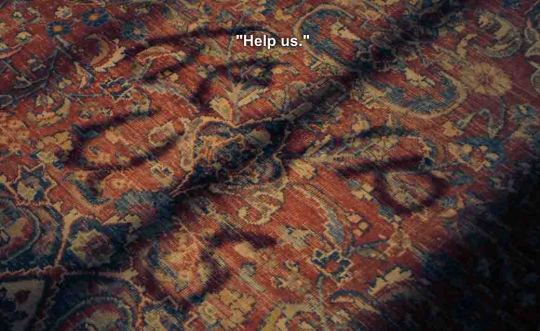
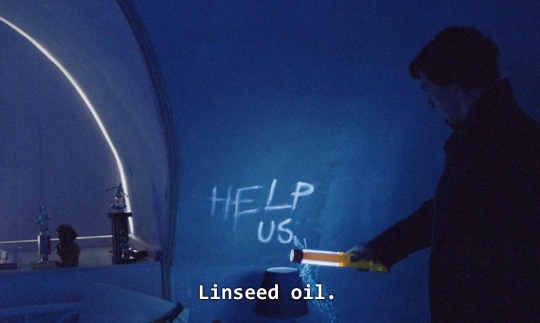
But the bringing of Bram Stoker’s old narrative into present time in the third episode (The Dark Compass) kind of sealed the deal for me.
Suddenly we have Count Dracula sending text messages by smart phone to his victims:
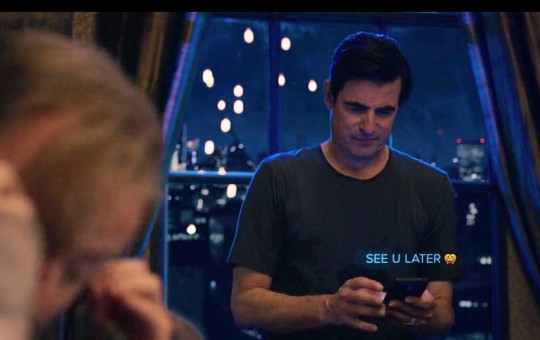
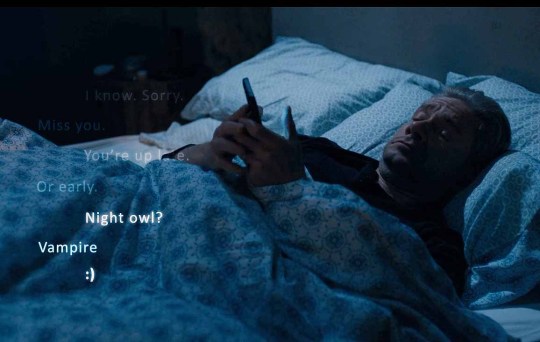
We have Dracula vomiting on the rug of a crime scene:

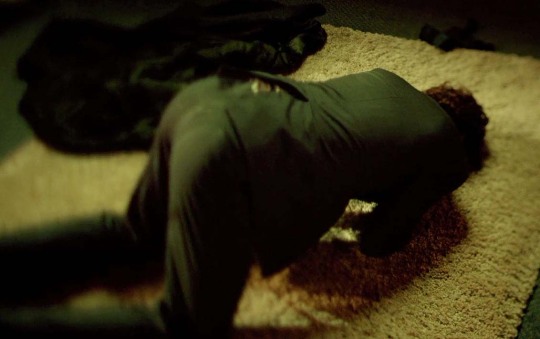
We have him storing body parts in the fridge! (X)
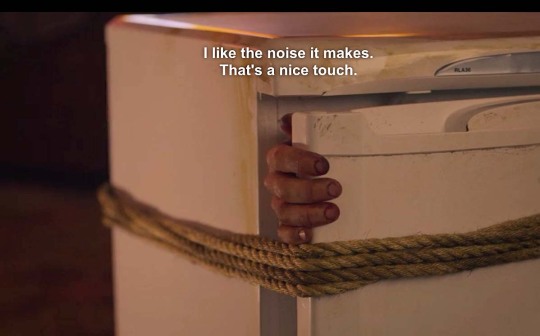
And this fridge scene is taking place while Dracula is watching a TV program with elephants on the Savannah, exclaiming “Look at her - so beautiful!”:

Who is beautiful - the ‘Elephant in the Room’? It certainly feels like Mofftiss are stringing us along here, doesn’t it? ;)) But no; it’s the sun that Dracula admires as beautiful, we learn that in the show. The shining from the sun is a thing he thought he could never endure, but ultimately he learns that he actually can.
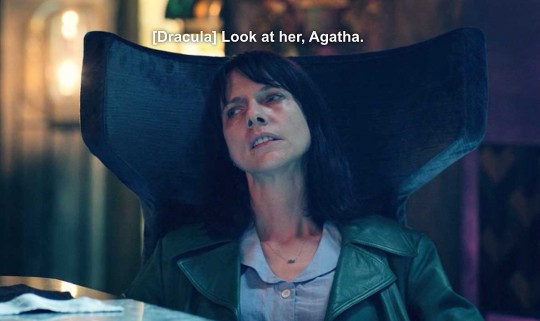
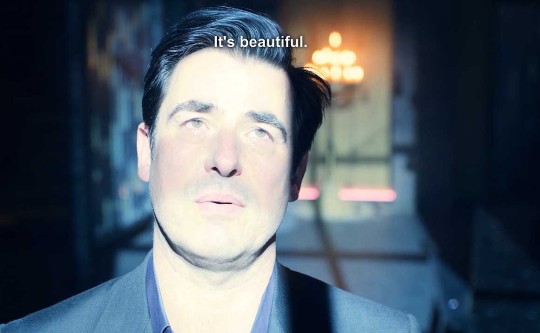
Same thing as Sherlock says about John Watson the distant suns in the sky in TGG:
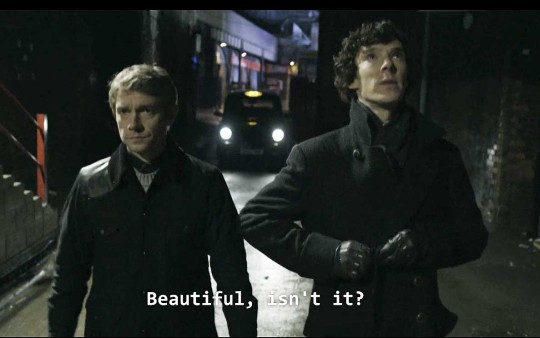
Or about Sister Sentiment’s music in TFP:
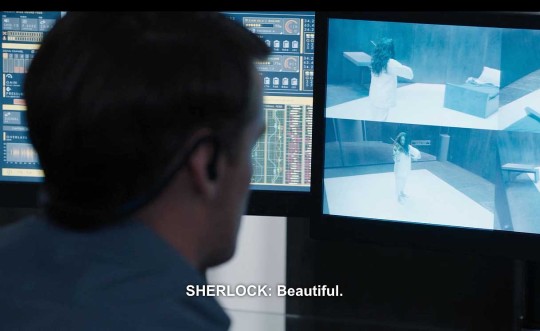
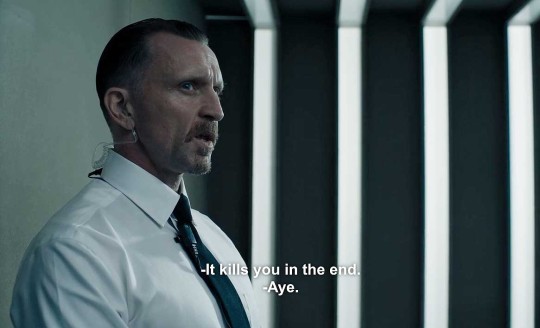
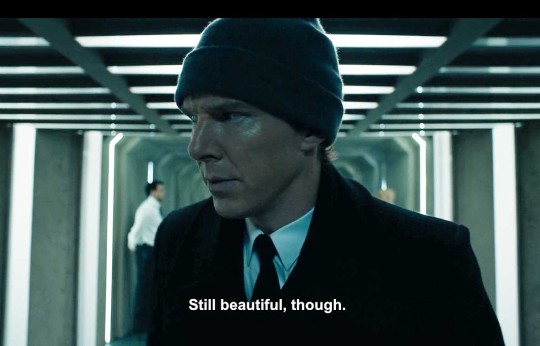
Taking Dracula to modern time is something that the authors had expressly denied they would do. But they were lying of course, as is their usual MO. Exactly the same deception as they did with TAB, isn’t it? And as if this wouldn’t be enough, there’s a whole list of other modern Sherlock references, summarized by @gosherlocked (X). I’m sure there’s more, we just need some more time to find them.
As I mentioned in this comment recently (X): The Lost Special (X) is a short story about a derailed, disappeared train that ACD wrote during the Great Hiatus (1898). It bears some typical Holmes-case mystery characteristics. And the anonymous person who in this story sends a letter to the train company, suggesting a way of solving the case, seems very much to be Holmes himself:
“It is one of the elementary principles of practical reasoning, that when the impossible has been eliminated the residuum, HOWEVER IMPROBABLE, must contain the truth. It is certain that the train left Kenyon Junction. It is certain that it did not reach Barton Moss. It is in the highest degree unlikely, but still possible, that it may have taken one of the seven available side lines. It is obviously impossible for a train to run where there are no rails, and, therefore, we may reduce our improbables to the three open lines, namely the Carnstock Iron Works, the Big Ben, and the Perseverance.”
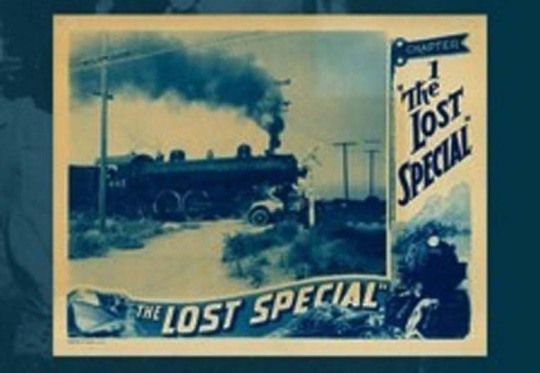
(X). So this short story indeed looks like a Holmes story in disguise. But Sherlock Holmes’ name is never mentioned in The Lost Special and the storyteller is not John Watson. In this story the police did not act on this anonymous person’s advice. The truth wasn’t revealed until one of the perpetrators - a hired murderer who was threatened with execution years later - admitted that he had participated in derailing the train in question (X): “A conspiracy of men had temporarily re-attached the side track leading to the abandoned mine Heartsease just long enough for the train to go down to the mine, then pulled the tracks back up before they could be discovered.” To the broader audience, however - the Holmes readers - the character of Sherlock Holmes remained ‘dead’.
The wrapping up
One could say that The Lost Special both had and had not a satisfactory ending. Satisfactory because the truth was finally told and the mystery thus solved, but unsatisfactory because in spite of all the hints, the readers didn’t get to know anything more from Holmes. Not until years later (1903) when ACD actually did ‘resurrect’ him and continued the narrative of Sherlock Holmes with 33 more short stories.
When Dracula finally ‘dies’ at the end of the BBC Dracula series, it’s not by being ‘staked’ or burnt to ashes with the sunlight as one would expect for a ‘monster’ like him. It’s by embracing the criticism of his most resilient but dying opponent: Zoe/Agatha Van Helsing (Mofftiss call her ‘Zagatha’ in an interview). She is dying from cancer, not from vampire bites. Dracula drinks her (to him) mortal blood and then ‘dies’ in her arms, basking in the sunlight (without burning) in a tender lovers’ embrace.
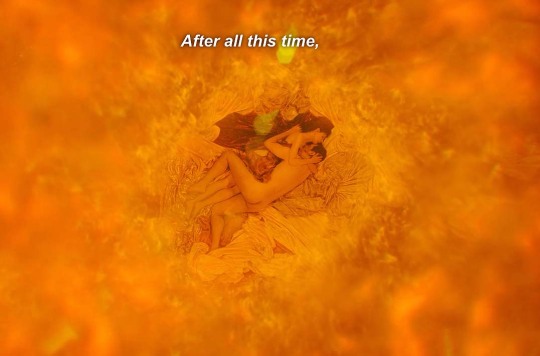
Zagatha in BBC Dracula is criticizing the vampire for skulking in the shadows, being afraid of facing death. She says it will be his punishment to live on for eternity, while she is mortal and dying:
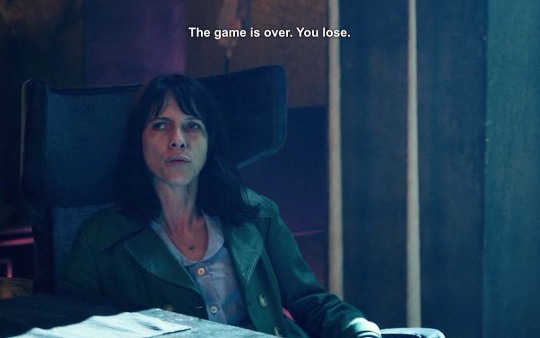
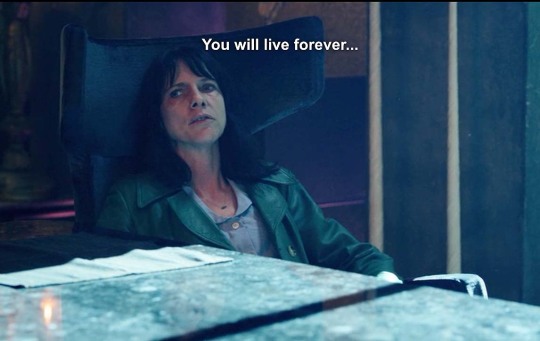
Seriously, this is so much ‘Buffy the Vampire Slayer that I can’t just... But Count Dracula re-writes Bram Stoker’s original story and opts for another solution: to ‘die’ willingly in the sunlight, together with Zagatha. And if dying is a metaphor for falling in love - as I believe it is in BBC Sherlock - this might have some important implications. I think Dracula and Zagatha here represent two sides of Sherlock that are finally allowed to merge; his Sentiment and his (Homo)sexuality.
Like The Lost Special, BBC Dracula is nicely wrapped up and ‘solved’. But we still don’t really know what happened with Count Dracula, because we don’t actually see him crumble into ashes like he did in Stoker’s canon, and like the other vampire who was ‘staked’ in the show - Lucy Westenra. But the episode is packed with Sherlock references, so...
But I can’t say for the life of me that S4 of BBC Sherlock brought a satisfactory ending for the Holmes narrative either; it’s not ‘wrapped up’ at all! John and Sherlock seem to live on for eternity as ‘best friends’, solving crimes in the heteronormative ‘legends’ preferred by Ghost!Mary’s voiceover. They are simply immortal, Un-Dead for ever - like a punishment? Wouldn’t it be far more satisfying if Sherlock Holmes and John Watson’s characters would come out and appear ‘human’ and ‘mortal’ and not have to remain just ‘best friends’ forever?
The (lack of) train references
One might argue, of course, that there are no specific train references in BBC Dracula, so how could we think it has anything to do with The Lost Special? Because, like The Lost Special, BBC Dracula is a Sherlock story in disguise! And because in the BBC Sherlock narrative itself there are already several episodes with train references; the most prominent of them is TEH and the last one - TFP. So there’s really no need for more references. But the train theme isn’t explained; it’s not ‘wrapped up’ at all, and neither is Sherlock’s story. I’ve tried to argue before that the detective is actually dying in S4, and so have others (X). And making him immortal will not save his credibility as a human.
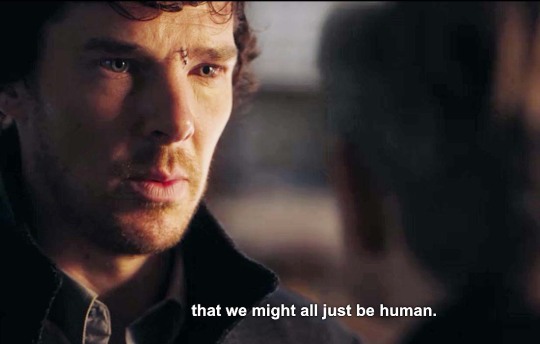
I do hope he’ll wake up again, though - preferably with help of modern medicine rather than superstition - to a more credible and realistic story than both TFP and Dracula. ;)
In TEH, apart from scenes with John Watson traveling alone through the Underground network of London, we have a derailed Underground train carriage near Sumatra road, where no-one would care to look. Like a Lost Special. It’s not carrying a bomb; the whole carriage is the bomb, which is threatening to overthrow the Parliament. Which very much makes me think that Mofftiss still have a metaphoric ‘bomb’ stored for us, a ‘rug-pull’ of sorts. But John and Sherlock (and the world) were not ready in TEH, so they switched it off. The ‘bomb’ never went off in S3 (2014). In TEH John was urging Sherlock to ”use your Mind Palace” to defuse the bomb, and I think he did - for the rest of the show up until TFP. Because in TEH, Instead of the big explosion, we got a truly weird, staged scene with Anderson (who didn’t quite believe Sherlock’s explanation anyway).
And then the plot carried on in its heteronormative tracks with John’s wedding and Mary taking over the narrative. But in TST we learned that Sherlock, as a child, had re-written an old tale about someone encountering Death in ‘Samarra’ into a story where the hero ends up in Sumatra instead, and lives. In TFP the plot derailed completely into an absurd horror story, and we got Moriarty as train driver, going “Choo-choo!” like a train whistle:
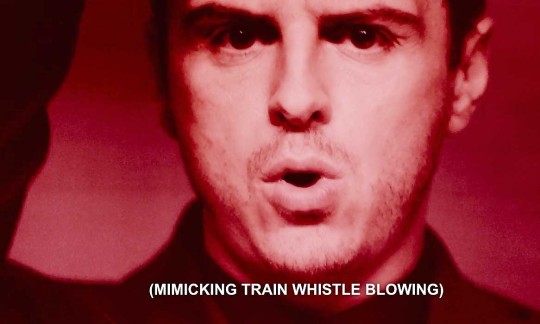
But the only 'explanation’ related to trains that we learn about Moriarty in TFP is rather lame: that Jim’s brother supposedly was a station master (not from canon, though). And then he goes “tick-tock, tick-tock” like a ticking bomb:
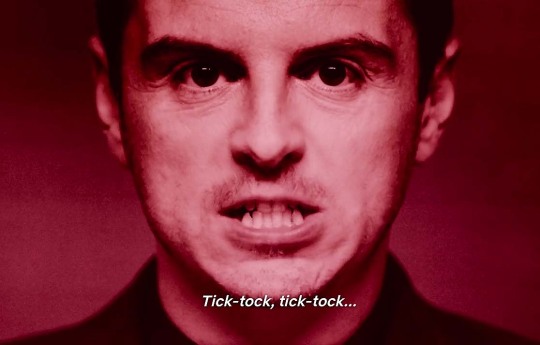
(Also similar to Mycroft’s ‘tick-tock’ countdown until he’ll die from obesity in TAB). But no bomb went off at that point in TFP either (I’m not counting the Patience Grenade here, because that happened before the ‘tick-tock’). So what was all that tick-tocking about? And how long will it keep ticking asdf?
The Sussex Vampire etc.
After reading some interesting metas from @yeah-oh-shit (X, X) and @ebaeschnbliah (X) I feel more and more convinced that legal issues with the ACD Estate might be very relevant for what Mofftiss are doing with BBC Sherlock and BBC Dracula. Three important ACD stories have now entered the public domain on January 1st this year: The Sussex Vampire (SUSS), The Illustrious Client (ILLU, where Holmes and Watson visit a turkish bath ;) ) and The Three Garridebs (3GAR; known for a scene where Holmes shows a glimpse of his true feelings for Watson). in SUSS there’s a quote about Sumatra which I find really interesting in the context described above:
“Matilda Briggs was not the name of a young woman, Watson,” said Holmes in a reminiscent voice. “It was a ship which is associated with the giant rat of Sumatra, a story for which the world is not yet prepared.
As I said in this comment (X), there’s a lot of subtext to draw from this. And I do hope the world is prepared now. ;)
@raggedyblue @ebaeschnbliah @gosherlocked
79 notes
·
View notes